MACQUARIE UNIVERSITY STUDENT PUBLICATION

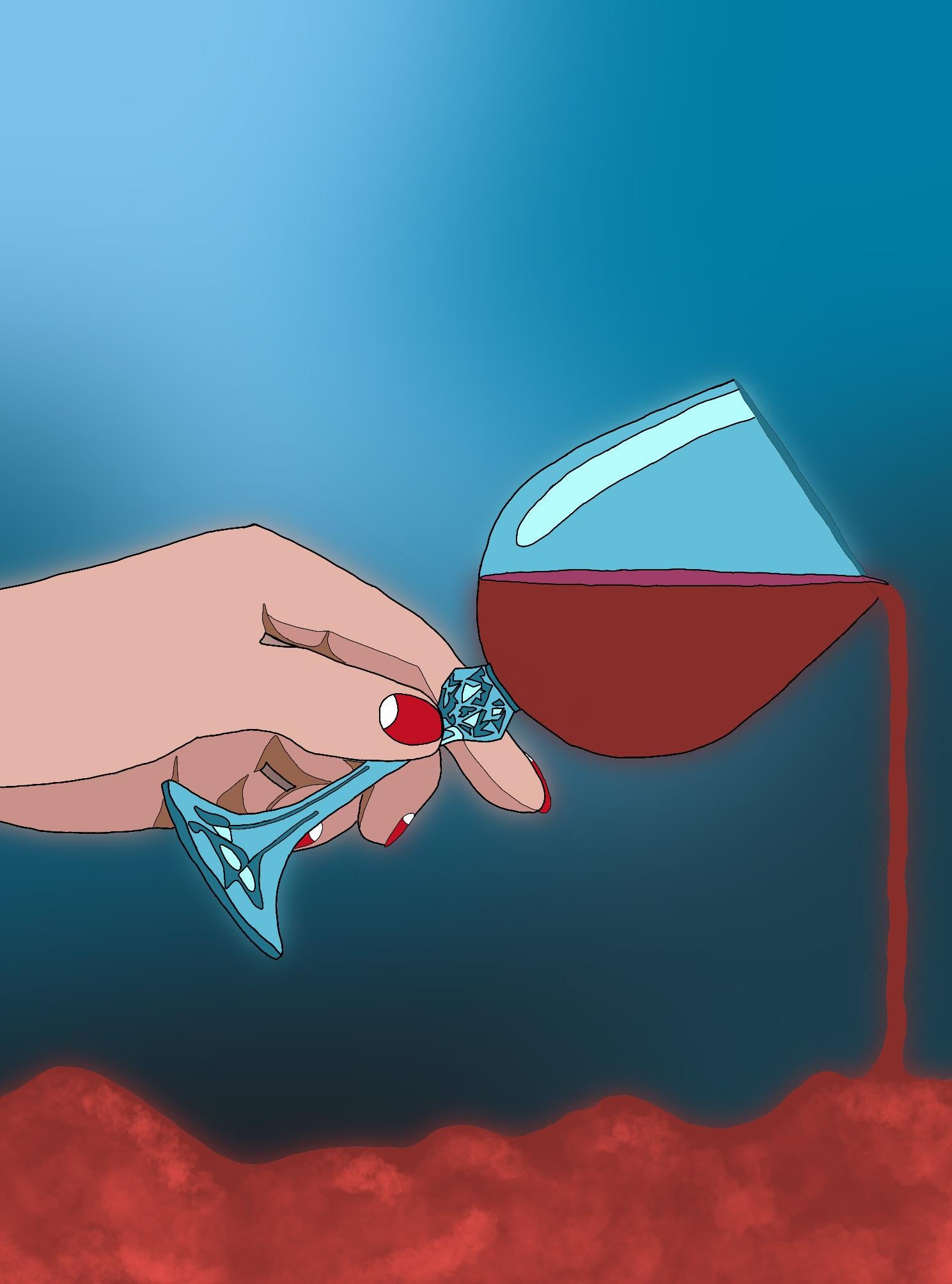
GRAPESHOT VOLUME 15: ISSUE 1: CRYSTAL CLEAR 01 CRYSTAL CLEAR
2023
FEBRUARY
Hello Grapey Readers,
Thank you so much for taking time out of your day to read Grapeshot. The Grapeshot team has worked tirelessly over the summer holidays—starting in 2022—to deliver you our first issue of the year right when semester 1 starts. This issue will always be near and dear to my heart as my first issue as Editor and so I want to thank everyone in the Grapeshot team who helped make it a reality. Especially Jackson, my deputy editor, who’s kept me sane throughout the entire process.
I feel above honoured to be Editor in Chief for Grapeshot’s 15th year and I am so excited to be here for the following six issues of Grapeshot’s legacy.
Grapeshot has evolved much over its 15 years. Updating its logo, altering its cover design, and having an ever-changing team. However, throughout it all Grapeshot has maintained its fun, charming and light-hearted reputation.
This year, Grapeshot continues to evolve. Thus I’m delighted to announce that we are changing some of Grapeshot’s sections. Inside this issue you’ll notice we merged Regulars with Repeat Offenders. While splitting Features into two sections creating a new section, Variegated. Variegated will house our fun, short and miscellaneous pieces, that don’t really have a home in the other sections, but which have become a cornerstone of Grapeshot. While the contents of Grapeshot won’t change much as a result, this allows us to give more time, attention and pages to the pieces that you all love the most, both to write and read. We are excited to see the reception of this new section and hope you all love it as much as we do.
Lastly, I’d like to thank my friends and predecessors, Saliha and Nikita for paving the way for Grapeshot post-COVID. Without you the magazine wouldn’t be where it is today and for that I am thankful.
With all that said, I am thrilled to present to you issue 1 of 2023: Crystal Clear.
With Love,
Lauren Grzina, Editor in Chief
Welcome valued Grapeshot Reader.
We are so glad to see you’ve joined us for our introductory issue to 2023, Crystal Clear. This issue is all about seeing life from a different perspective, to not only reflect on the experiences of ourselves, but the relationships we have with others. However, this theme focuses on one key and critical piece of information; it’s Grapeshot’s 15th anniversary.
The traditional gift of a couple celebrating 15 years of commitment, is crystal. Therefore, to celebrate the anniversary of our publication, we are giving our readers the gift of Crystal Clear clarity. As you journey through the pages of Issue 1, various motifs of crystal appear: from a shattered mirror to a crystal ball, each object is representative of how this theme is helping Grapeshot reflect on its 15-year legacy.
When developing this theme, we wanted to encourage our writers to explore the raw emotions behind some of their most defining experiences. The hurt felt when a relationship deteriorated, the life altering moment that helped expose a piece of ourselves we didn’t know was there. But looks can be deceiving, like looking into at a wine glass and seeing a distorted reflection of your face. Crystal Clear is all about perception, presenting an honest picture and being transparent about how we feel.
Crystals from the earth also heighten the theme as they can have healing properties, ones that we hope to inflict on you. Over the last 3 years, Grapeshot has struggled along with all of you, bending to the changed rules and procedures felt by the pandemic. As we enter 2023, our hope is to acknowledge these difficult times and ensure we make the most of every moment. For this reason, Grapeshot is back and better than ever, bringing you even more fun, beautiful and creative pieces this year, starting with a brand-new section and a few more surprises on the way. Make sure you’re following along on our socials and contributing your stories to ensure you are a part of the next chapter in Grapeshot’s history.
Yours Truthfully,
Jackson Robb, Deputy Editor
32 FEATURES
Newsflashes
Energy Price Relief Plan: What the New Changes Mean
NSW Ban Single-use Plastic Ban
Andrew Tate Detained in Romania
Campus News
Meet the Team
Macquarie Student Society Guide
Dear MQ Love Letters, Why am I Lonely?
National News
Lismore and Surrounding Communities Still Unable to Fully Rebuild Everything You Need to Know About Canberra’s Decriminalisation of ‘Hard’ Drugs
International News
The FTX Controversy
Asexual Romanticism
Maybe I’m Just Sick
If You Had A Crystal Ball
The Housewife
From Best Friends to Familiar Strangers
44 CREATIVES
Angelic Acrobat
A Definitive Guide to Glassware
Snowglobe
Untitled Photograph
Around the Table
Volatile Melancholia
The Rooneyfication of Gen Z
The Art of Lying to Your Therapist
2023 Resolution: Drop the People Pleaser Title
The Faces of Jimmy McGill, the Question of Honest Change
A Discussion on Narrative Politics (Grapey Book Club)
Grapey Playlist
POP CULTURE REWIND: Romeo + Juliet
Nic’s Flix: The Banshees of Inisherin Horoscopes
Viewsexpressedbytheauthorsarenotthoseofthepublisher.
EDITORS’ LETTERS CONTENTS ISSUE 1: CRYSTAL CLEAR 6 NEWS
REPEAT
55 VARIEGATED 61
OFFENDERS
7 8 9 12 16 24 26 28 30 33 36 38 40 42 45 46 48 51 52 54 56 58 60 62 66 68 69 70 73

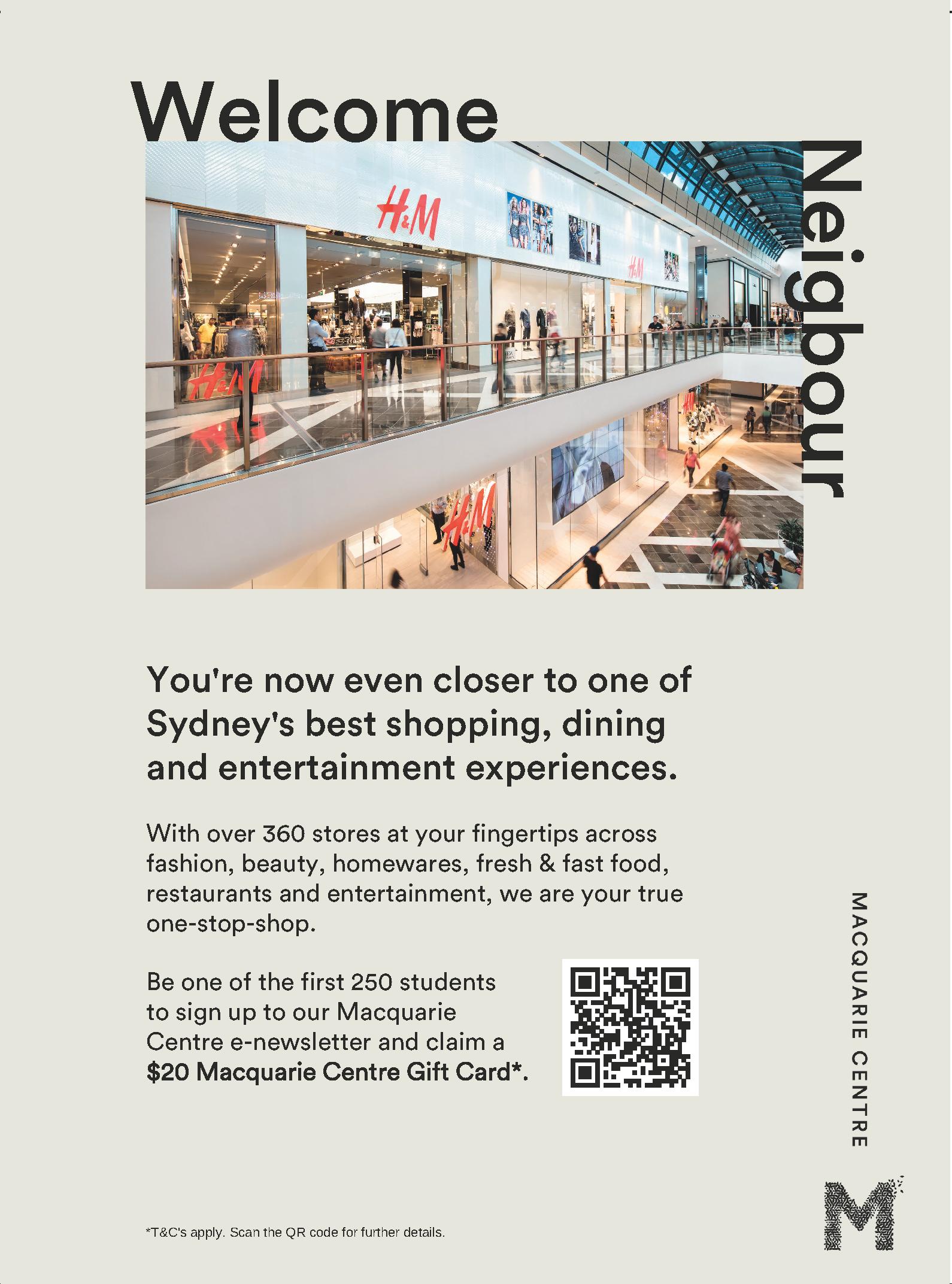
DO YOU HAVE SOMETHING TO CONTRIBUTE? SEND US YOUR PITCHES, IDEAS, QUESTIONS, WORDS, PHOTOGRAPHY AND ART TO GRAPESHOT@MQ.EDU.AU!
Untitled Photograph by Vidyani Wanigasekera
ENERGY PRICE RELIEF PLAN: WHAT THE NEW CHANGES MEAN
With Australia amid an escalating energy crisis, News Section Editor Zoe van der Merwe, breaks down the new Energy Price Relief Plan. What it means for you and how it plans to lower energy costs.
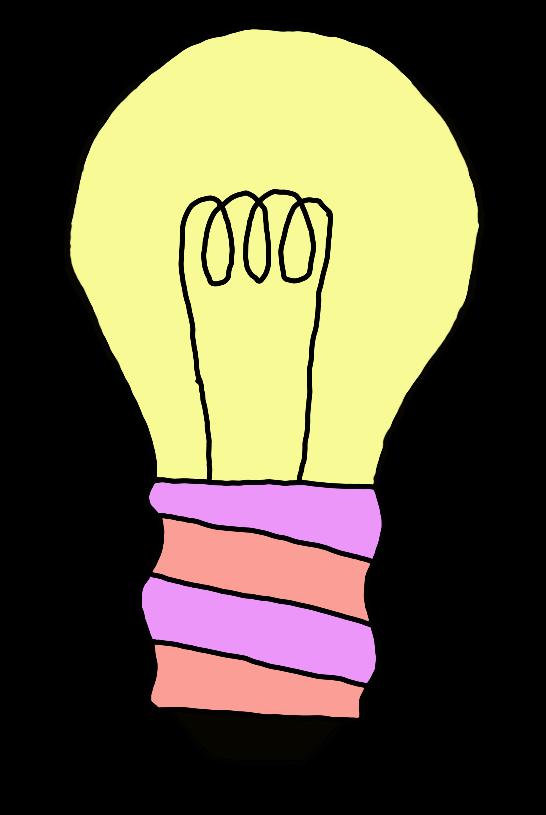
On December 15, the Energy Price Relief Plan was passed in Parliament, aiming to reduce the impact of rising energy prices. Under the new Bill, announced by Prime Minister Anthony Albanese, the federal government will contribute to energy costs by placing an emergency 12-month price cap on coal and gas. The Bill is set to provide “immediate action” on the prevalent energy crisis and “future reform” for the energy industry. [1]
The four key measures of the Bill include: [2]
1. Uncontracted gas prices capped at $12 a gigajoule.
2. Coal used for electricity, capped at $125/tonne.
3. $1.5 billion in “targeted” relief on power bills for small businesses and households in need.
4. A new Capacity Investment Scheme to ensure supply reliability for future renewable energy generation and storage.
These measures are estimated to dampen expected gas prices by 2% in 2022-23 and 16% in 2023-24. As well as reduce projected electricity prices by 13% in 2023-24 and decrease expected inflation in 2023-24 by 0.5%. [3]
Assistance will be directly built into household bills, with varying systems of implementation between states and territories. The Bill will undergo revisions and funding delegations in the National Cabinet and is set to be finalised by March 2023.
Despite these positive projections, there have been prevalent voices of concern from industry groups. Australian Petroleum Production and Exploration Association (“APPEA”) Chief Executive, Samantha McCulloch, said that “this intervention in the market will have the opposite effect of that intended. Price caps and ongoing regulation of prices will under mine the case for investment in new supply and ultimately lead to higher prices and greater problems down the track.” [4]
Amid an escalating energy crisis, time will tell if these measures in deed bring relief to the Australian people.
by Zoe van der Merwe
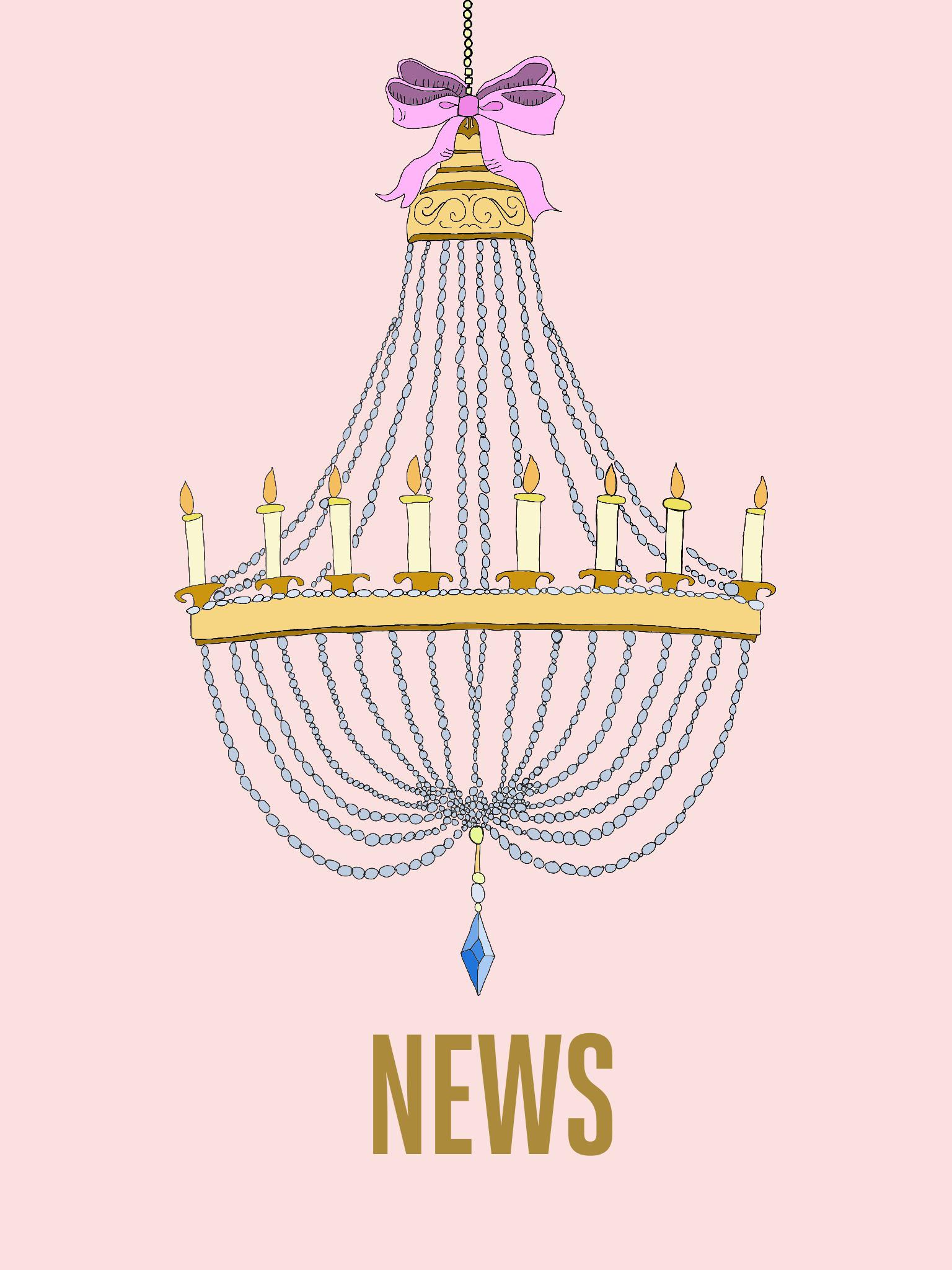
[1] “Energy Price Relief Plan.” Prime Minister of Australia, 15 Dec 2022, https://www.pm.gov.au/media/energy-price-relief-plan-0.
[2] Ibid.
[3] Grattan, Michelle. “Power Package: $3 Billion for ‘Targeted and Temporary’ Relief on Bills.” The Conversation 9 Dec 2022, https:// theconversation.com/power-package-3-billion-for-targeted-and-temporary-relief-on-bills-196292.
[4] Tancredi, Holly. “Energy Price Relief Bill Passes Parliament with Industry Concerns.” Energy Magazine, 20 Dec 2022, https://www. energymagazine.com.au/energy-price-relief-bill-passes-parliament-with-industry-concerns/.
[5] Ibid.

7 NEWSFLASHES
NSW SINGLE-USE PLASTIC BAN
Noticed the slow disappearance of plastic straws across our state? Editorial Assistant Eva Anido describes the new ban on single-use plastic products.
Gone are the days of Boost Juice asking whether you want a plastic or paper straw when picking up your Mango Magic on campus. NSW has banned single-use plastics in restaurants and other businesses, but what does this mean?
In NSW from June 1 2022, we saw a ban on single use plastic bags (specifically 35 microns or less) spread across the state. Following this, on November 1 of 2022, the ban expanded to other single-use plastic items including: single-use plastic straws, stirrers, cutlery, plates, unlidded bowls, cotton buds, as well as foodware and cups made from expanded polystyrene foam (EPS). [1]
Every state in Australia has banned lightweight plastic bags. Tasmania is now the only state without a plan to ban single-use plastic items. NSW still allows some single-use plastic items like coffee cups, plastic takeaway containers, plastic produce bags and plastic cups and lids. So, we still have some way to go. [2]
If a business is distributing single-use plastics the individual using the item will not be at fault as the penalty will fall on the business. So, what would happen if a business still used these banned products in NSW? The responsibility for dealing with this belongs to the Environmental Regulator who will firstly educate the business as a warning, if seen fit. Otherwise, a fine will be distributed of up to $1100 for individual businesses or $5500 for corporations. [3]
This may be a good step in the right direction for climate action in Australia.
by Eva Anido
ANDREW TATE ARRESTED IN ROMANIA
Deputy Editor, Jackson Robb, details the recent arrest of Andrew Tate, stressing the importance of critical evaluation in our interaction with social media.
TW: Rape, Sexual Assault
In the last days of 2022, infamous influencer and former kickboxer, Andrew Tate, was seized with several of his accomplices by Romanian authorities and arrested under charges of human trafficking, rape and forming an organized crime group. [1] Tate, infamous for his controversial views on women and men’s role in society, has previously gained traction across various social media platforms. From his time as a contestant on Big Brother in 2016, where he was allegedly removed on assault charges, to his fights against trolls where he boasts his excessive displays of wealth. [2] However, Tate rose to viral success in 2022 when his videos started becoming highly viewed on TikTok, with clips of his ‘41 Tenets’ surpassing 10 million views and becoming adopted by mass amounts of users, particularly young men and boys.
To Tate’s credit, his Tenets highlight particular issues facing young boys and men in society, including mental health and self esteem concerns, however, he fills these gaps with blatant misogynistic rhetoric, suggesting men are responsible for becoming the masculine, wealthy and physically dominant whilst women are to dismiss any agency they possess in their mission to become loving wives and mothers. Tate also commented that women who have been sexually assaulted should “bear some responsibility”, a view that is deeply troubling and resulted in him being banned from Twitter. [3] However, during the Musk administration of Twitter, Tate has since returned to the platform, with his latest target being the young climate activist, Greta Thunberg.
Tate tweeted Thunberg, bragging of his many cars and their various emissions, including the capacity of his Bugatti and Ferrari’s, prompting her to provide an email address he can use to send her “a complete list of my car collection and their respective enormous emissions”. The very nature of a 36-year-old man challenging a 19-year-old on social media presents troubling concerns, but Thunberg was quick to respond, inflicting the charm only a Gen Z can, replying:

[1] “NSW is Making the Switch!” NSW Plastic Ban https://nswplasticsban.com.au/.
[2] “Which Australian States are Banning Single-use Plastics?” Marine Conservation, 4 November 2022, https:// www.marineconservation.org.au/which-australian-states-are-banning-single-use-plastics/.
[3] Meacham, Savannah. “NSW Has Phased More Single-use Plastics: Everything You Need to Know About State’s New Ban.” Nine News, 1 November 2022, https://www.9news.com.au/national/nsw-single-use-plastic-ban-whatsbanned-not-banned-november-1-explainer/cf6470ed-a263-4e0a-bd45-f2651aacf3a1.
8 NEWSFLASHES NEWSFLASHES
9
Thunberg’s tweet quickly became a viral hit and has since become the fourth most liked tweet in history. [4] Not long afterwards however, Tate responded to the tweet with a defensive video that commented on Thunberg’s appearance, gender and ultimately denying the existence of climate change, all whilst continuously failing to quote the tweet accurately. Tate includes in the video “please bring me pizza, and make sure these boxes are not recycled”. Two days later, he was arrested.
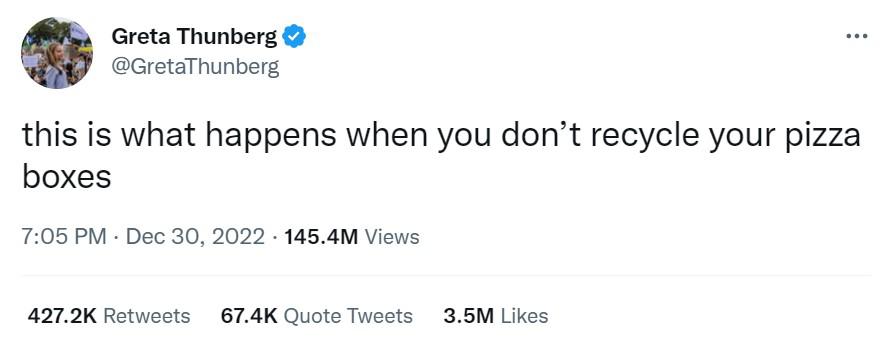
Speculation online suggested that the pizza Tate used to taunt Thunberg was a tip to authorities that confirmed Tate’s presence in Romania, however the anti-organised crime unit has since disproven this. [5] Further details of the arrest have not yet been made public, however several of his vehicles have since been seized as part of the investigation. [6]
Tate and his accomplices are set to go to trial towards the end of January, however he remains present on Twitter and encourages his followers not to believe the media of the matrix. Many of Tate’s followers began to spread a narrative that he has since been released, using old footage from videos to suggest he was set free, a case study in misinformation. Tate and his followers demonstrate a concerning reality on social media of how information is received and misinterpreted, further encouraging the need for accurate and reliable sources. As new information comes to light over the coming months, ensure you are reading from reliable outlets and take the advice of Ms. Thunberg, and recycle your pizza boxes. [7]
by Jackson Robb
[1] “Andrew Tate Detained in Romania on Organised Crime and Rape Charges.” The Guardian, 22 Dec 2022, https://www.theguardian.com/world/2022/ dec/30/andrew-tate-detained-in-romania-on-organised-and-charges.
[2] Das, Shanti. “Inside the Violent, Misogynistic World of Tiktok’s New Star, Andrew Tate. The Guardian, 6 Aug 2022, https://www.theguardian.com/technology/2022/aug/06/andrew-tate-violent-misogynistic-world-of-tiktok-new-star.
[3] “Andrew Tate Detained in Romania over Human Trafficking Case. (2022). BBC News, 30 Dec 2022, https://www.bbc.com/news/world-europe-64122628.
[4] ”Most Retweeted Posts of All Time 2020.” Statista, n.d, https://www.statista.com/statistics/699462/twitter-most-retweeted-posts-all-time/.
[5] Ibid.
[6] Media, P.A. “Andrew Tate arrest: Romanian Authorities Seize Four More Luxury Cars.” The Guardian, 6 Jan 2023, https://www.theguardian.com/world/2023/ jan/06/andrew-tate-arrest-romanian-authorities-seize-four-more-luxury-cars.
[7] Twitter, n.d., https://twitter.com/gretathunberg/status/1608735970131849217.
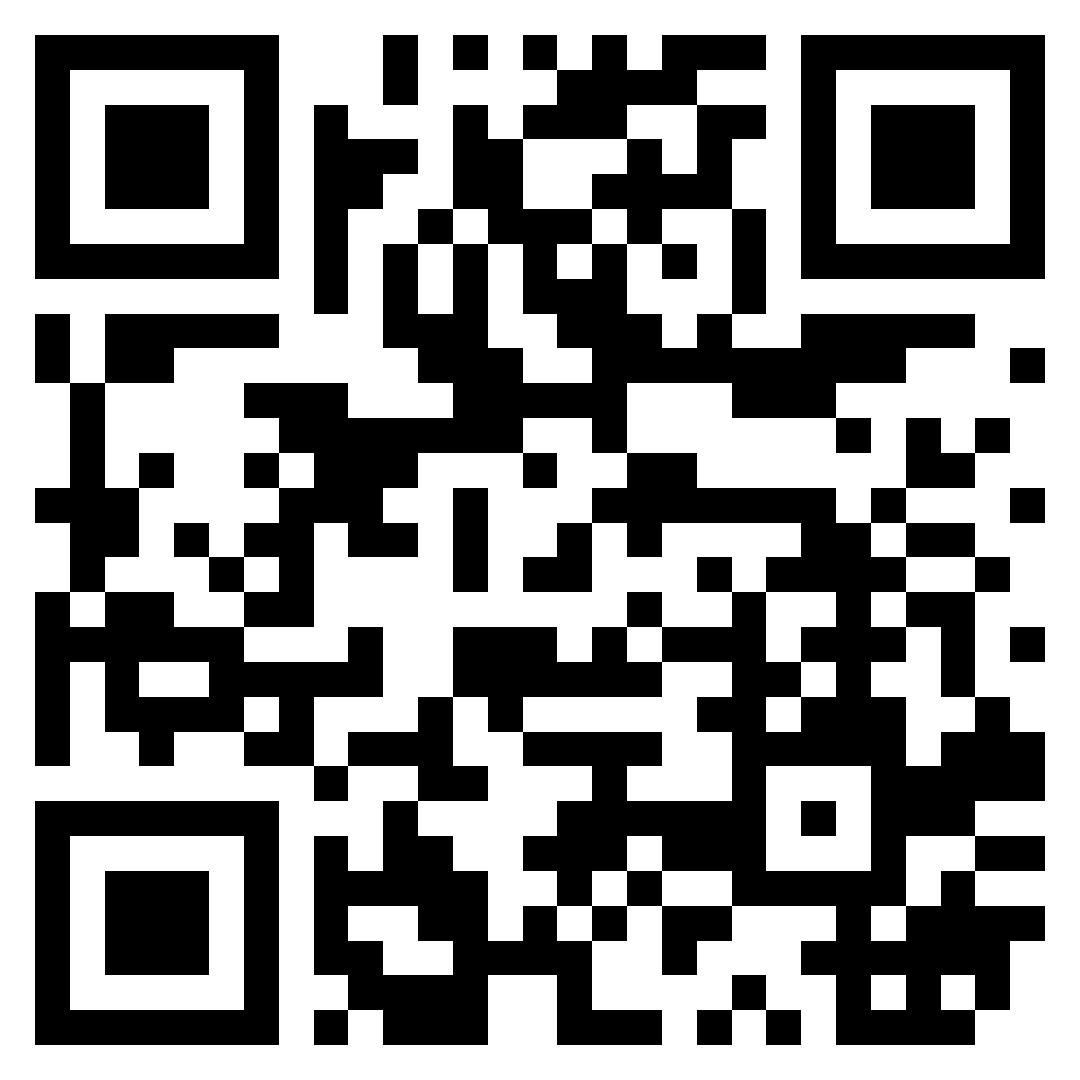
10 NEWSFLASHES 11 NEWSFLASHES
KEEP UP TO DATE WITH EVERYTHING GRAPESHOT BY FOLLOWING US ON INSTAGRAM
EDITORS
MEET THE TEAM
EDITOR IN CHIEF Lauren
DEPUTY EDITOR Jackson

DESIGN
NEWS SECTION EDITOR
Zoe van der Merwe
FEATURES SECTION EDITOR
Bruna Gomes
CREATIVE DIRECTOR Karina

LEAD ILLUSTRATOR Giselle
VARIEGATED SECTION EDITOR
Nilab Siddiqi


REPEAT OFFENDERS SECTION EDITOR Clara Kristanda
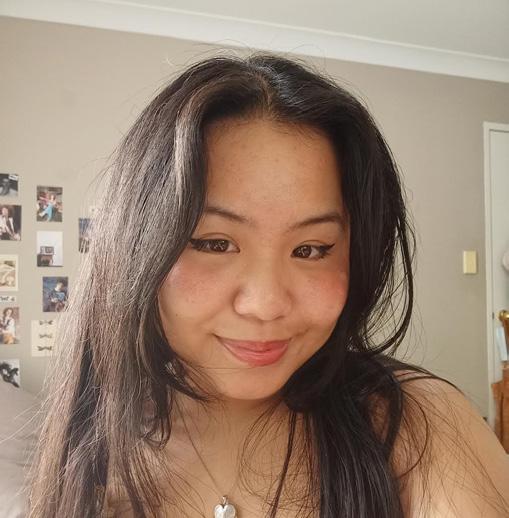

DESIGN ASSISTANT Farnoosh Rafiei

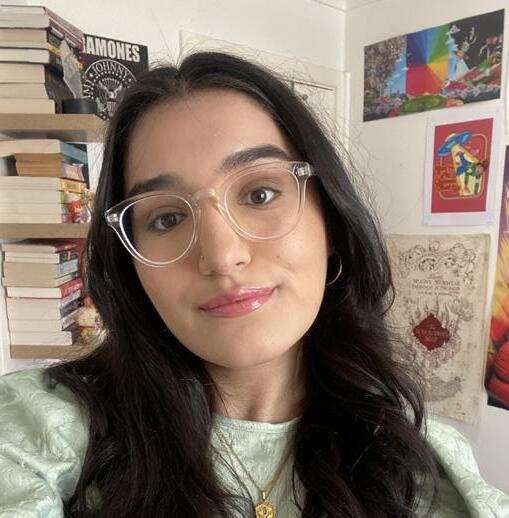
DESIGN ASSISTANT
DESIGN ASSISTANT Catherine Anthony
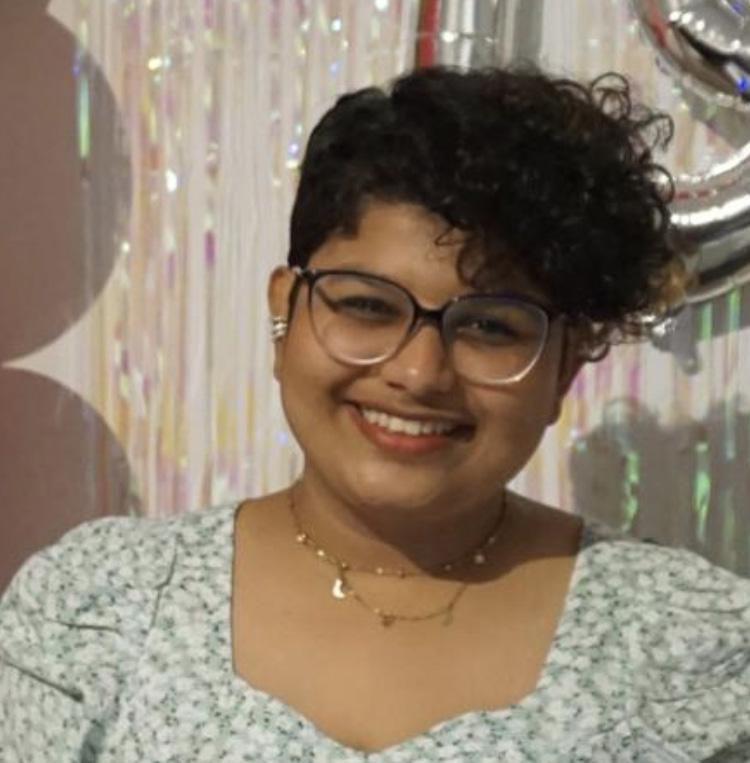


12 CAMPUS NEWS 13 CAMPUS NEWS
Grizna
Robb
Wong
Fernandez
Muskaan Miglani
MEET THE TEAM
MARKETING
MARKETING ASSISTANT
Anjali Premkumar

MARKETING ASSISTANT
Ateka Rajabi
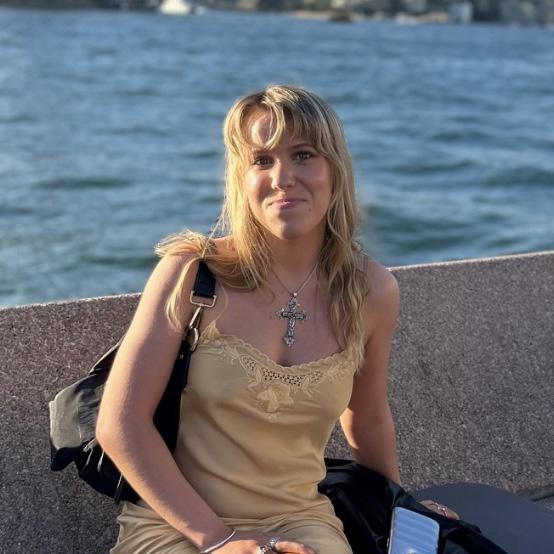
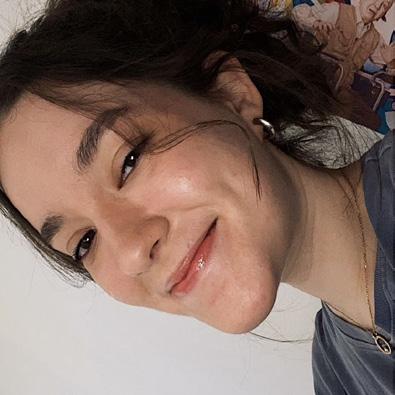

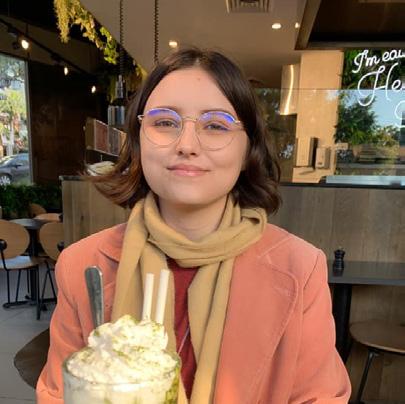


EDITORIAL ASSISTANTS
MARKETING ASSISTANT
Serene Palleygedera
MARKETING ASSISTANT
Ayesha Maitland
NEWS Eva Anido
FEATURES
FEATURES
Timothee Luong
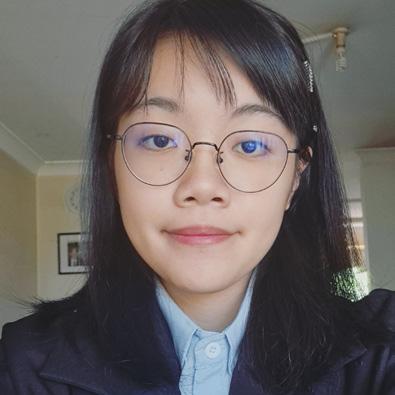
FEATURES
Holly Mitchell
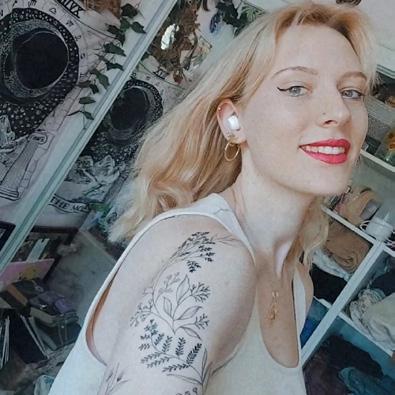
CREATIVES
Kayleigh Greig
CREATIVES
VARIEGATED Freya Petterson
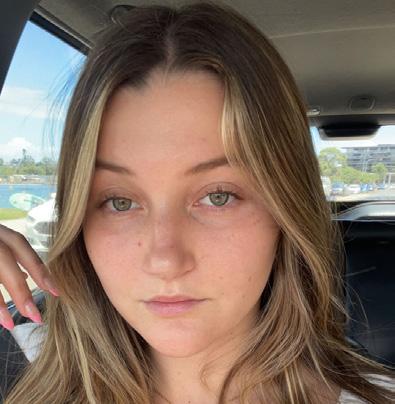
VARIEGATED Liana Naidu
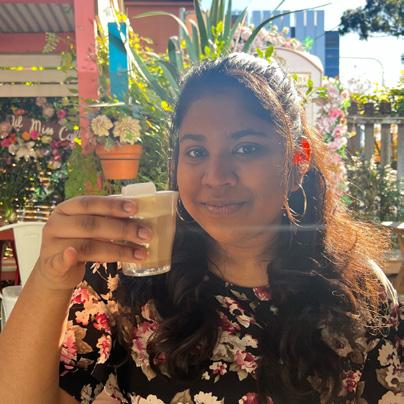

VARIEGATED Sophie Poredos
MARKETING ASSISTANT
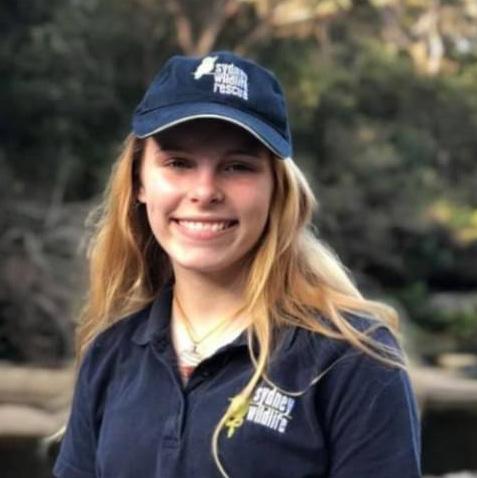
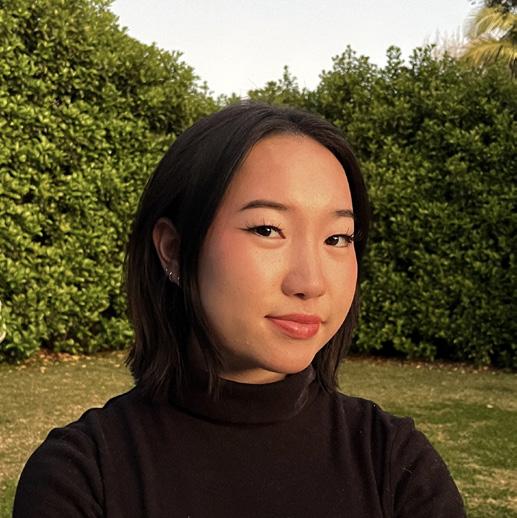
Megan La
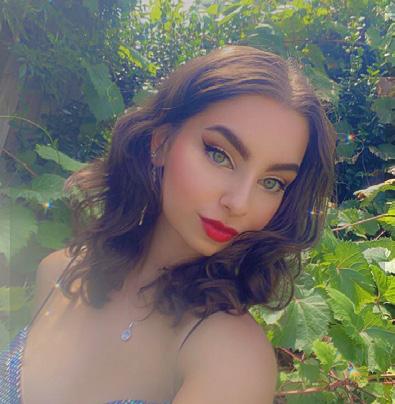
REPEAT OFFENDERS
Nicholas Chang
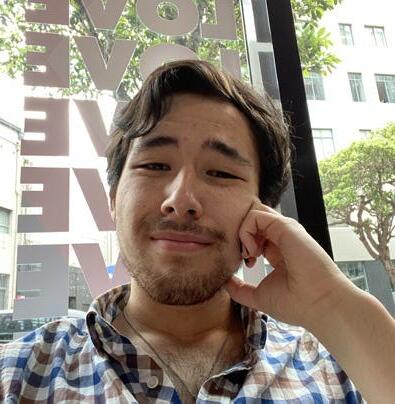
REPEAT OFFENDERS
Priyanka Sangar
14 CAMPUS NEWS 15 CAMPUS NEWS
MEET THE TEAM MEET THE TEAM
Sarah Soyali
Jasmine Oke
MACQUARIE STUDENT SOCIETY GUIDE
Whether you’re new to MQ or a returning student, Grapeshot has got you covered, compiling summaries that detail MQ societies you might be interested in joining this year.
MACQUARIE STUDENT SOCIETY GUIDE
The Macquarie University Queer Collective is a community of and for LGBTQIA+ and gender-nonconforming students and Allies alike. The group aims to facilitate the formation of social connections for queer students as well as provide them with a safe and judgement free environment to explore and express themselves. The designated QueerCo safe space on campus (which can be found at 18 Wally’s walk: MUSE) offers a comfortable respite for students in between classes or just whenever they please to relax or to study. The space is designed to protect the student’s identities and members are all encouraged to be respectful of each other. Members stay engaged on our discord server. The collective organizes social events and friendly competitions between members, and also participates in university events to represent the LGBTQIA community here at Macquarie. Look out for our stall at O-week, or reach out to us on Facebook (MQUQueerCollective) or Instagram (@ mqu_queerco) to join!
DRAMAC
From Shakespeare to modern comedies, there is plenty of theatrical variety available to you through DRAMAC, MQ’s theatre society. We put on eight theatre productions a year, with many smaller events spread in between, including things like tech workshops, screenings, and social events. If you’re interested in acting, directing, producing, doing tech or backstage, or even just watching the shows, you should absolutely sign up! Formed in 1968, we are proud of the hundreds of successful productions that have taken place in The Lighthouse Theatre, a dedicated performance space with one of the biggest amateur stages in Sydney. We frequently post about upcoming auditions and other opportunities on social media, available via linktr.ee/DRAMAC
MACQPSYCH SOCIETY
MacqPsych is the Psychology Society at Macquarie University. We host fun events such as parties, cruises, first-year welcomes and our annual ball whilst also hosting educational events such as honours and beyond, research spotlight and Psych talks and we are hoping to do much more in 2023. We currently have a director position open, Treasurer, that you can email us about if you wish to apply. Another way to get involved is to apply for our subcommittee teams, applications will be opening at the beginning of the year.
FENCING SOCIETY
Do you have a deep internal desire to hit your friends with a sword (safely), and make new friends doing it? We have you covered. Macquarie University Fencing Club is a social and competitive club that runs in the Sports and Aquatic Centre on Friday nights from 7:00 pm to 10:00 pm. Our fencers range from complete novices to national and commonwealth games champions, and new members of all experience levels are always welcome. If you want to get involved, we run a learn to fence course every semester. You can find us at our O week stall, and on our social media pages which can be found through the following link: www.linktr.ee/mqfencing
Hoping to see many new faces in 2023!
SINGAPORE STUDENT ASSOCIATION

Calling all Singaporeans and friends! Our aim as MQ Singapore Students Association is to celebrate a culture of ‘home away from home.’ Our society is open to Singaporeans as well as everyone who is curious about our little red dot and its culture! We have exciting events coming up for the year 2023 and we would love to have you join us! We will have our booth during O-week where you can join our raffle/spin the wheel and win exciting prizes! Aside from that, we also have our welcome party at the start of the session for new and commencing members to get to know each other, and the end of semester bbq event where we will be giving out welfare packages for everyone who joins! That’s just some events we have planned for the year, if you wish to find out more, do visit us at our O-week booth!
MACQUARIE DANCE SOCIETY (MDA)
Macquarie Dance Academy is a society dedicated to street dance. Which is an umbrella term for dance styles created outside of a studio setting, such as Hip Hop, Breaking, Waacking, Krump and the list goes on. We also teach choreography and have members from all walks of life and backgrounds, from previous classically trained dancers, to people who have never danced before, and people who live and breathe Street dance. We do dance classes catering for complete beginners to intermediate, we also have opportunities to perform in a crew as well as compete in Freestyle dance battles if that’s up your alley. Outside of dance we’re a good place to wind-down and mingle. At the start of Sem we’ll be running a meet and greet and a short course for absolute beginners to dance. Hope to see you there!
To stay updated follow us on our socials in the linktree on the right top corner. Or follow us on instagram @mqdance
16 CAMPUS NEWS 17 CAMPUS NEWS
NATIONALS SOCIETY
The Macquarie University Nationals Society is a members club for students from regional, rural and remote backgrounds to connect, make new friends and experience country activities throughout their time on campus. We focus on providing network opportunities through our guest speaker events with politicians and business leaders while also providing recreational activities such as camping, keg nights, and farm tours.
We want to see you succeed at university while having a great time and keeping in touch with your regional background. So whether you are from the bush, the coast or anywhere in between, please get involved and have a great experience with the Macquarie Nationals Society.

Facebook page: https://www.facebook.com/MQU.MUNS

LinkedIn: https://www.linkedin.com/company/mqnats/
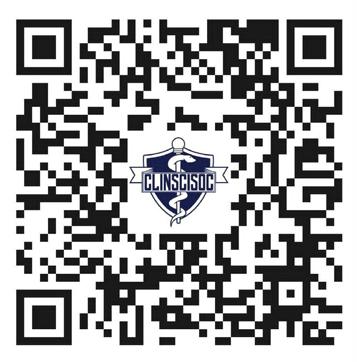
CLINICAL SCIENCE SOCIETY
Hello Everyone!
We’re the Clinical Science Society, and we’re the perfect society for you if you are studying the Bachelor of Clinical Science course (go figure). Though of course, anyone is welcome, as joining us will be an amazing way to make some awesome new friends, have fun in events, and get all the support you will ever need! We’re a close and collaborative community offering opportunities to get you more prepared and comfortable for your future healthcare professions, whether it’s Medicine, Physiotherapy, Dentistry, or anywhere in-between. Our society values academic excellence, charitable community outreach, and professional networking. By joining, you can participate in a multitude of academic workshops, initiatives, and events which will allow you to grow into the shoes of a healthcare professional. Our academic workshops are where we shine - our society is extremely cooperative, offering incredibly helpful opportunities to form study groups ranging anywhere from your Introduction to Anatomy Unit to the GAMSAT.
We hope to see you soon!
MQ SWIFTIES
MQ Swifties is the society for all things Taylor Swift! We run social events including trivia, picnics, karaoke and movie nights to connect Taylor’s fans and discuss her music. We have online communities such as our Facebook group and Discord server to chat about favourite albums, share theories and more. We also raised more than $5500 for charity in 2022!
MQ Swifties is dedicated to being a welcoming, inclusive space for all Swifties. Whether you’re a die-hard fan or just want to make friends and talk about music, this is the place for you! We’d be enchanted to meet you in 2023. To join, simply fill out our membership form - find it in our Instagram bio (@mqswifties) or Facebook group (MQ Swifties)! Keep an eye out for details of our upcoming events.
EFFECTIVE ALTRUISM
Want to make a social impact but are unsure what the best use of your time and resources will be? Effective Altruism is a global network of do-gooders that provides answers to such questions as: what will be the most effective problem area to dedicate my career? And which charities and non-profit organisations are doing the most good?
Here at Effective Altruism MQ, we aim to create a space to: 1) encourage discussion around these topics, 2) provide learning resources for wanting to dig deeper, and 3) make a real impact through donations to effective charities and on-campus events.
We’re welcoming to people of all backgrounds and encourage open discussion. If this interests you, please reach out! Effectivealtruism.mq@gmail.com
AUSTRALIAN FOOTBALL CLUB (MUAFC)
Founded in 1969, Macquarie University Australian Football Club (MUAFC) competes in the AFL Sydney competition. MUAFC is a volunteer-run, student and community sporting club with a proud history. Fielding two women’s teams and two men’s teams, MUAFC has enjoyed consistent on-field success throughout its 51 year history. MUAFC is dedicated to the development of its footballers and therefore our club operates continually year round. The playing season is from April to September while the preseason program is November to April. For more information please contact Kristian Purdie (President) at kristian.purdie@ gmail.com

HOCKEY CLUB
Macquarie University Hockey Club has four mens teams and five womens teams playing across three Sydney competitions, Sydney Hockey Association (SHA), Sydney Women’s Hockey League (SWHL) and Sydney North Women’s Hockey Association (SNWHA). Our players come a variety of backgrounds including students and alumni of Macquarie University, no matter the skill level or age we welcome all.
The club has a number of off field social events throughout the year which include, new season kickoff (new players are encouraged) which is on Friday the 24th February. Our social summer comp starts on the Monday 16th January and runs till Monday 20th February (Instagram for details @mquhockey)
18 CAMPUS NEWS 19 CAMPUS NEWS
ECONOMICS SOCIETY
The Macquarie University Economics Society is a home for students interested in economics. We are a group of undergraduate and postgraduate students looking to share their enthusiasm about the discipline with the broader campus community. Intertwined with the Economics Department, we provide an environment for students to deepen their economics understanding by discussing pressing topics and issues. To facilitate this exchange of ideas students can expect several events per semester, where industry experts and academics give talks and interact with our members. After every event, you can enjoy some snacks and talk with other members or guests. Our blog, Conflicting Ideas, provides a space for students to voice their opinions and explore the different ideas of economics. 2023 is a new year and MQ students can expect to see a continuation of what we have become known for, with some new initiatives too. If you’re interested in diving into the world of economics and policy, or contributing to our blog, we invite you to hit up our socials and join our membership. For more information visit our website. We look forward to seeing you!
ANIME MACQUARIE (AMQ)
Anime Macquarie (AMQ), is an open and welcoming society that celebrates the appreciation of anime and manga, as well as Japanese culture. We are one of the largest social societies at Macquarie University, engaging in many activities such as karaoke, KBBQ, movie screenings, end-of-year camp (in collaboration with other Sydney universities!), and a plethora of parties throughout the year! Alongside all of our in-person events, we hold weekly events in our Discord server, which you can come along and join. Aside from anime, we all enjoy a variety of different things including gaming, fitness, and art.
If we’ve piqued your interest and you would like to learn more, come along, and say hi to us at our stall during Orientation Week and we’d be happy to answer any of your questions. We are all excited to see you there and would be delighted to have you join in on the fun!
SKI AND SNOW SPORTS SOCIETY (MACALPINE)
Looking for the chance to meet your best friends on campus? MacAlpine is the place for you! We are Macquarie University’s Ski and Snow Sports society and are always looking for newbies young and old to come and join the fun! Throughout the year, our team works hard to bring you the best social events both on and off campus including 2 ski trips and a host of other parties! July sees the club take 40 members to Thredbo for a 5 day week of skiing and partying whilst our highly sought after trip to Queenstown is a 10 day monster where 90 members get the opportunity to ski and explore New Zealand like never before!
Want to know more about us? Find us at O-Week and have a chat with one of our friendly exec team to find out what the club can do for you! Alternatively, shoot us a dm on Facebook or Instagram and we’ll set you up with the info you need for a great year!
2023 is going to be huge for MacAlpine, the only question is, will you be there with us?
ARCHAEOLOGY SOCIETY
Are you a lover of Indiana Jones and The Mummy? Well ASMU is the place for you!

ASMU are a group of students with an interest in archaeology that come together to expand both our knowledge and our friendships. Members of ASMU are the first to find out about fantastic archaeological events occurring at the university, events at the Macquarie University History Museum, and opportunities for excavation. With close involvement with the Faculty of Arts and the Department of History and Archaeology, ASMU provides degree-focused information and events, such as Lunch with Lecturers and networking opportunities with archaeological professionals, to maximise student engagement and involvement with practical archaeology. ASMU also runs a variety of social events, such as movie nights, ceramic painting, scavenger hunts and general gatherings to give you a chance to chat to classmates outside the classroom.
To find out about events, job opportunities, excavations and more, follow ASMU on Instagram and Twitter (@Archaeology_MQ). If you have any questions or would like to become a member, head to the website (asmu.group) or send an email (archaeology.mq@gmail.com)!
180 DEGREES CONSULTING
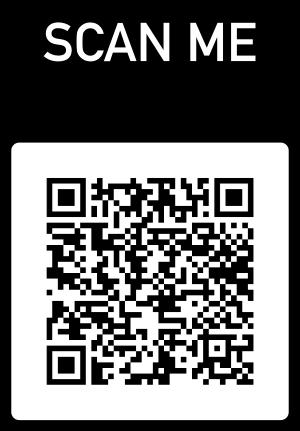
180 Degrees Consulting Macquarie University provides students with the opportunity to work on consulting projects for non-profit organisations. Our mission is to assist these organisations in strengthening their social impact through innovative, practical and sustainable solutions. Working in teams, our consultants spend the semester analysing and preparing quality recommendations that address specific challenges faced by the client organisation. Projects our consultants may undertake include marketing strategy alignment, human resource development, grant identification and donation stream establishment. With the expectation to commit 4 to 8 hours per week, consultants will receive extensive internal training and mentorship from our partner for-profit consulting firms (including Deloitte, BCG and Accenture).
If you’re interested in applying to be a consultant, please fill out the Semester 1 2023 Expression of Interest form. Consultant Applications will open in early February.
If you have any questions or queries, please do not hesitate to contact us at macquarie@180dc.org.
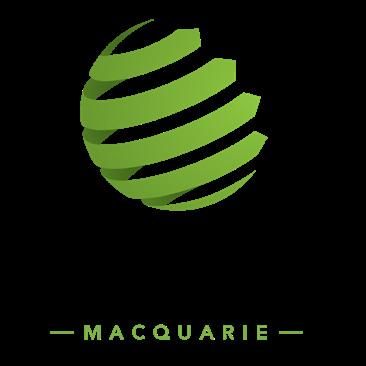
20 CAMPUS NEWS 21 CAMPUS NEWS
WOMEN ENTERING BUSINESS (WEB)
Women Entering Business (WEB) was established in 2016 by five high achieving female students from Macquarie Business School, driven to create a web of connections for female students in business. At WEB we embrace our values of providing our members with exceptional opportunities to network with industry professionals, up-skill and build confidence. Through the provision of social and professional events, WEB aims to equip our members with the practical competencies, connections and knowledge in order to best prepare them for the transition into the corporate world. In this ever-changing world, WEB’s mission is to constantly empower the next generation of future leaders by fostering a community where women inspire each other and achieve their career goals.
WEB has an exciting year ahead of us! In week 1 you can find WEB at O-Week. In week 2, WEB will host start of semester drinks at Ubar. In week 3, WEB will host a breakfast for International Women’s Day with our sister societies from UTS, USYD and UNSW. Follow us on social media @mquweb on Instagram and Women Entering Business MQU on Facebook to keep up to date with all of our opportunities throughout the year.
ACCOUNTING STUDENTS ASSOCIATION
ASA is the Accounting Students Association at Macquarie University.
“A bridge between students and the corporate world”
Our objective is to provide social & professional events, including workshops, that add value to our student members, aiding them in achieving their personal and professional endeavours.
Through partnerships with external organisations, we connect our members with industry professionals and resources that will enhance their knowledge, wisdom, and business experience.
Here at ASA, we value Leadership, Growth and Family as they reflect our priorities, the direction we take, and the actions we take as a society.
So, who can join? One of the greatest things about our society is that you don’t have to be studying accounting to join ASA. We encourage and welcome students studying any discipline at Macquarie University! Our events allow you to increase your employability skills, meet qualified individuals from different industries, and help you develop a strong peer network.
You can become a member of ASA by scanning the QR code or by visiting our stall during O-Week! (We do have an annual $5 membership fee, but it’s worth it!)
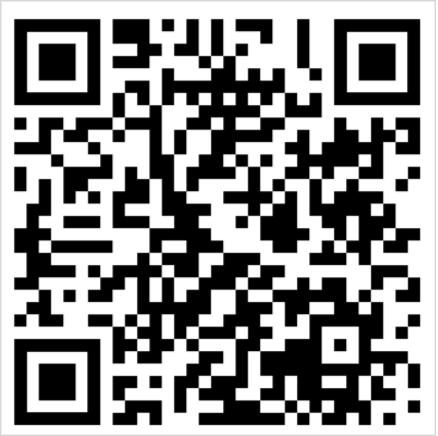
Be sure to follow us on Facebook (@MQasa) and Instagram (@mqasa) to get updates on our events!
LAW SOCIETY
Macquarie University Law Society (MULS) is a student-run body for all law students at Macquarie University. MULS aim to provide an array of opportunities, events and initiatives to enhance a student’s professional, academic and personal skills, ranging from participating in competitions, attending events that help shape your future in the legal industry, initiatives that help you connect with others and establishing friendships along the way! Benefits of our membership include being one of the firsts to receive MULS information and discounts on events and at Cult Eatery, all for $5 for a one year membership!
WATER POLO
The Macquarie University Water Polo Club (MQUWP) is a very social, yet competitive, water polo club that represents MQU in the Sydney Metropolitan competition. We are based out of the Macquarie University Sport and Aquatic Centre with training and a majority of our games played here. The club has a super fun vibe made up of university students, alumni and the local community.
We host various social activities throughout the season including season kick-offs, presentation nights, pub crawls, picnics, bbqs and even beach water polo weekend trips away! We also assist in fielding Intervarsity Uni Cups & National Uni Games that play all over Australia!
If you’ve played before or are wanting to give water polo a try we cater for all levels and welcome new members! We just ask that you are a confident swimmer.
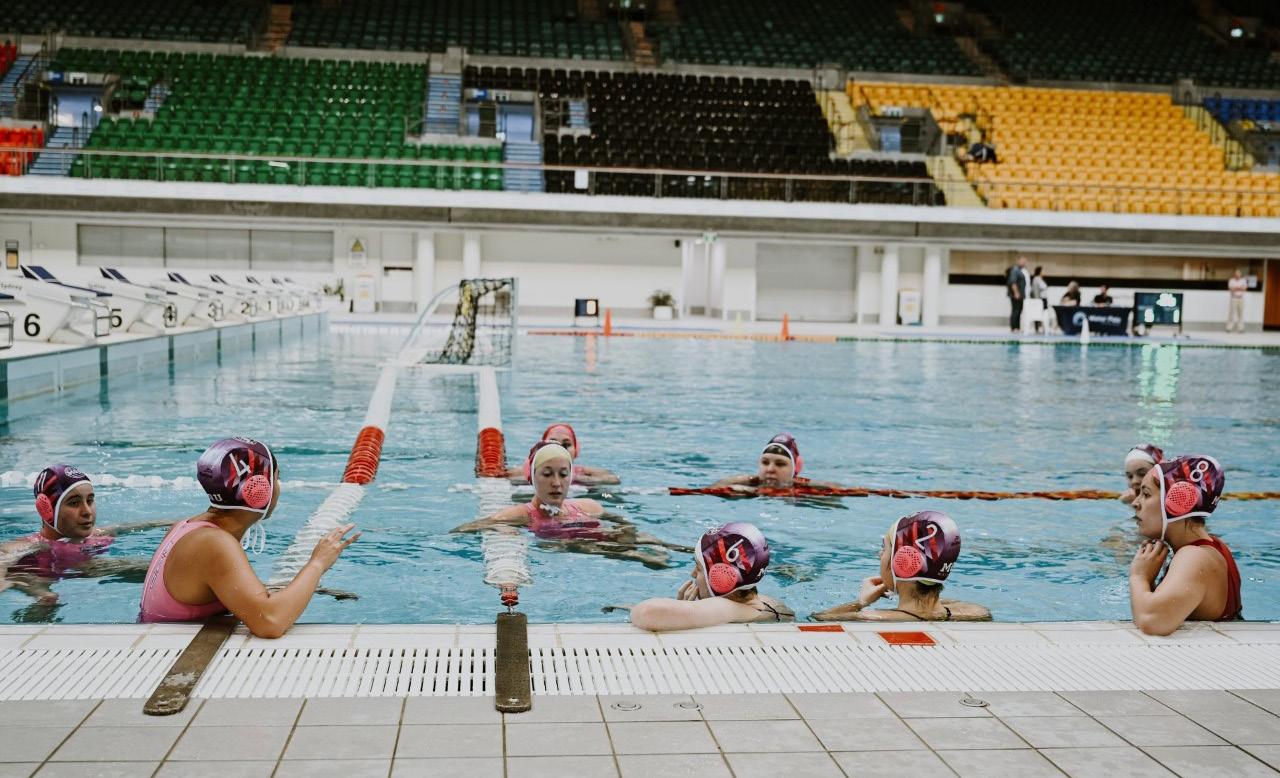
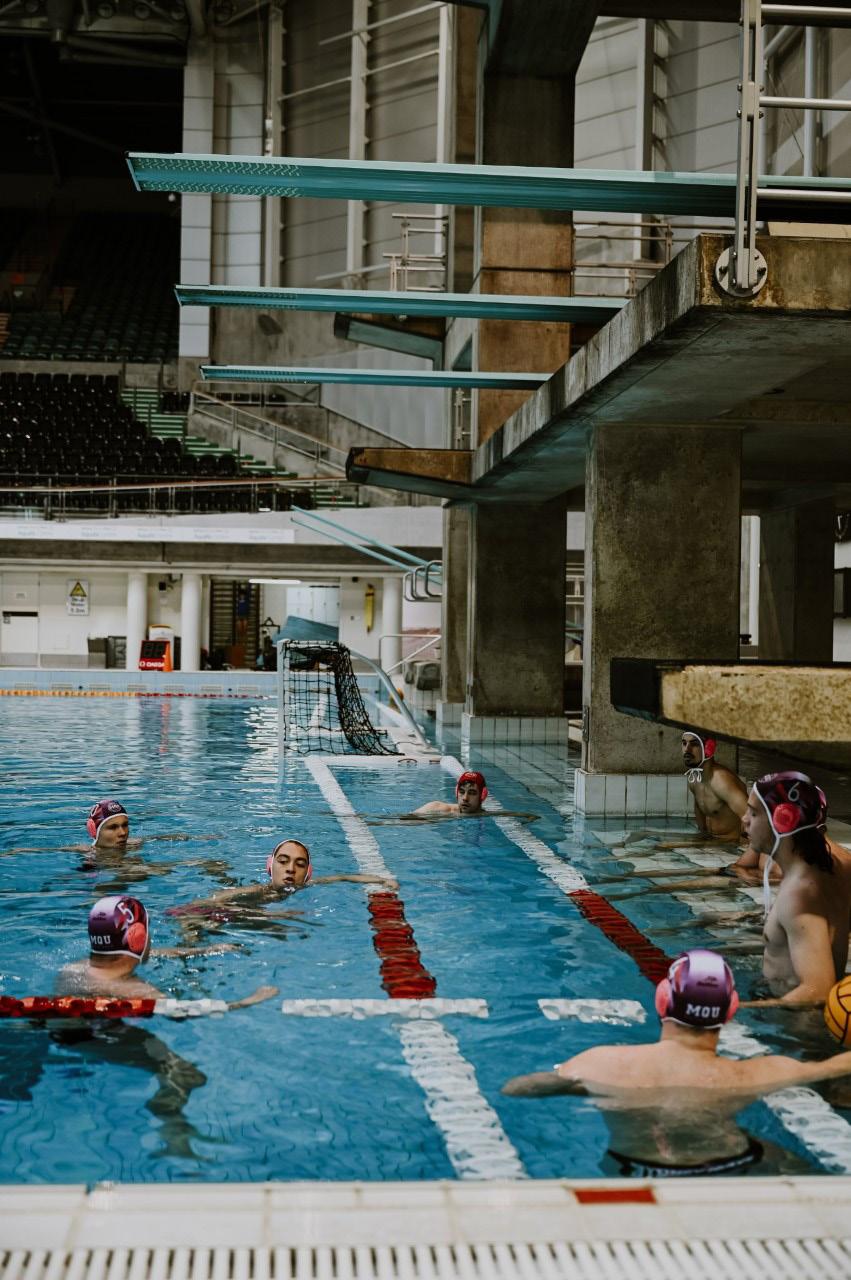
Come along to any of our training sessions for FREE! Please bring your own goggles.
Women’s Training - Monday 7:30 to 9:30pm
Men’s Training - Thursday 7:30 to 9:30pm
Stay tuned & contact us through our socials for more club info and events: @mquwaterpolo on Insta & FB.

22 CAMPUS NEWS 23 CAMPUS NEWS
DEAR MACQU LOVE LETTERS …

WHY AM I LONELY?
Grapeshot’s Deputy Editor, Jackson Robb, explores the MACQU Love Letters Facebook page, highlighting its vitality in representing the authentic university student experience.
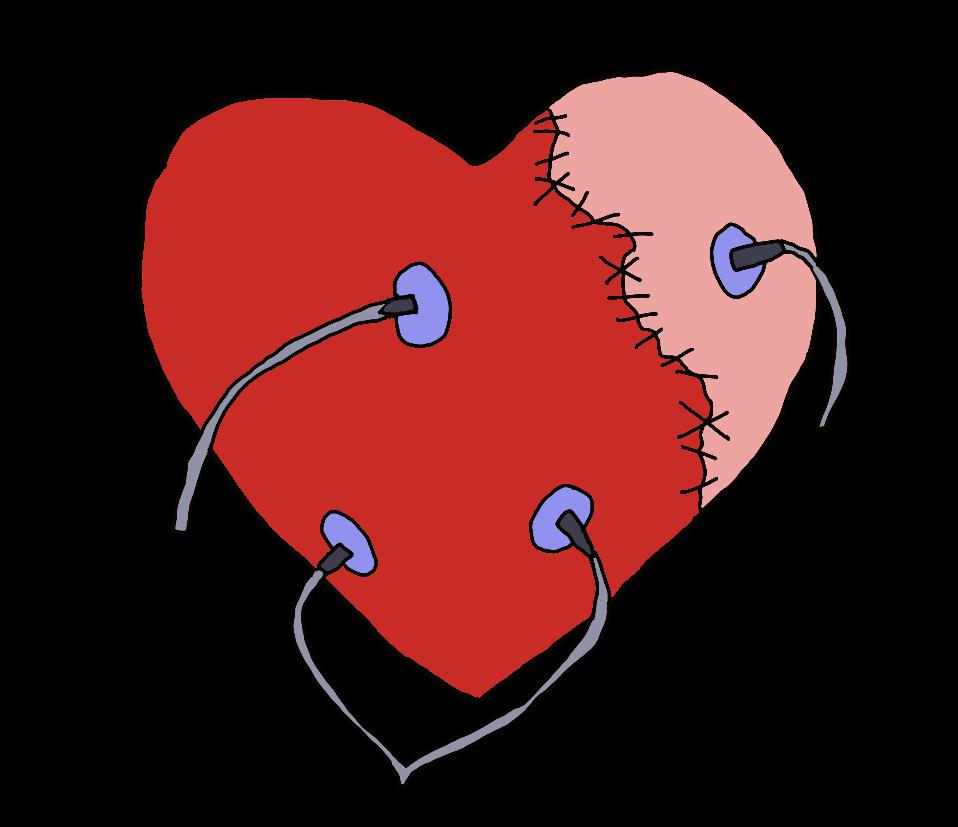
University students are often left out of the stories that regularly appear in the news cycle. Young adults are usually represented by ideas of frat houses and binge drinking that are depicted through movies and television, many of which derive from America. When these ideas of the university student are present, the expectation is that students meet it, or reject it. However, the media is constantly failing to depict the social pressures attached to the period after leaving high school where over two million Australians, aged 18-25, are endeavouring to find their path in life. During this time, if unaccompanied by peers, loneliness can heavily influence the experience students have throughout university, as contextual challenges over the last three years have resulted in a loss of community amongst young people in this demographic. Which brings students to a community that won’t let them down and fosters being open and honest without ever having to reveal your identity, the Macquarie Love Letters page on Facebook.
For those who are unaware, the MACQU Love Letters page is a space where students can anonymously post comments about people or experiences they’ve had on campus, allowing members to view and comment without knowing the individual’s identity. From love confessions for a classmate to feelings of frustrations of not having a relationship, the MQ Love Letters page is a space where students can express their dissatisfaction with their university experience. The page is a time capsule for post-Covid university life at Macquarie, but make no mistake, Macquarie is not the pioneer in the university love letter sector. Most universities across Australia participate in a love letters page, usually accumulating upwards of twenty thousand followers. A report from News.com showed that The University of Melbourne’s love letters have the most activity with over 170 love letters posted per week. [1]
Whilst the love letter Facebook pages for Australian University students are a fun and light-hearted way to express the strong emotions associated with having a crush, the pages are also are a valuable indicator of the social relationships forming during this period of development for young adults, with some confessions being very telling of how a new generation is learning to expresses themselves. Gen Z have become one of the biggest generations to be affected by mental health, with a report from 2017 indicating that only 45% of Gen Z individuals considered their mental health to be good or excellent, and that social media use is a high contributing factor. [2] Put into context, a generation that is known to be more connected and more informed, often have to grapple with their identity, rejecting traditional labels and forging a new path of self-expression. The MACQU Love Letters page can be an accurate representation of a generation finding their way, as mental health is coincided with phone usage, with 46% saying they can’t go more than an hour without checking it, to produce an online space to share the growing pains of young adulthood in Australia. [4]
Many students treat the page as an opportunity to advertise themselves to potential partners, listing age, height and degree specialisation as selling points. Others use the page to get advice from the wider community. In doing so, these confessions reveal a consistent pattern of problems many students at Macquarie are facing and are likely being felt across all Australian universities. Issues such as dealing with the fallout of relationships and friendships to meeting and talking to new people, the love letters Facebook pages can be a staple to bigger issues being left unaddressed by Australian universities. The transitionary period between high school and university can be extremely complicated for many young adults, as they are separated from the peers and respective support systems they access on a regular basis, with one article reporting “41% of school friendships become more distant during the first semester of university life”. [5] This article also indicates that a failure to develop
bonds can lead to negative repercussions on not only a student’s mental health but also their academic performance. This only accounts for the foundational experiences of being a student, as added pressure from family, moving out, part time work, internships, commuting and sickness can all add to the complexity of attending uni and making friends in 2023.
An assessment of the issues raised in the MACQU Love Letters corroborate the mental health concerns of uni students and why many feel lost and seek validation from strangers on Facebook. There is much benefit to an anonymous forum as it allows students to express themselves authentically, without the anxiety of feeling directly judged or belittled for their emotions. Students write about their struggles to meet people after graduating, the hardships of hook-up culture, the online dating world and the “objectively terrify ing” experience of starting a conversation with someone. This becomes evidence on how the ‘mediatization’ of relationships is leading to social interaction becoming more challenging to a new generation. [6] Rising social media concerns provide context to this story as students jet to technology to distract from uncomfortable situations, hop ing that an anonymous saviour will provide some truth to why their life isn’t similar to a poorly written coming-of-age story. The love letters page being accessible via Facebook is a prime example of how social media is both contributing to and relieving the social pressure of young adults in Australia.
The regulations behind running a page that deals so intimately with students’ emotions can come with dangerous consequences if not handled correctly. One such letter that was submitted to the Macquarie page involved a student getting defensive of a woman he was interested in, suggesting she needed to be saved from her friends that encourage her to go out on the weekends. The comments under this post were tinged with Gen Z satire and sarcasm, but none seemed to address the underlying misogynistic problems with this comment. The duality of the MACQU Love Letters page to help students understand their loneliness whilst also being a place for fun expression is a difficult balance to maintain, but it can become a useful resource for understanding young adults and how their opinions and views are sculpted. One article cites that the classroom setting, where students are encouraged to split their attention between their instructor and taking notes, maintaining conversations or conducting research, could be contributing to high phone usage amongst young adults. [7] This permanently online behaviour can be accredited to the success of the Love Letters pages, as students confide in the resource that has proven to be effective, though not always beneficial.
Representations matter, and the more media that authentically depict the reality for so many young people, the easier it will be for students to find truth and meaning about their relationships, without a university Love Letter page. Whilst the pages serve as a timepiece for a generation, the MACQU Love Letters page is a place for students to voice their attraction and interaction for other students, anonymously and unapologetically. It has become a place to air grievances, get advice or try and figure out if someone has feelings for you. But most importantly, the MACQU Love Letters page is a representation of an authentic student experience, one that everyone should continue watching.
We contacted the admin of the MACQU Love Letters page for comment but received no reply at the time of publishing.
by Jackson Robb
[1] Yim, Noah. “Rise in Facebook Love Letters Tracks Return to University. News.com, 8 Mar 2022, https://www.news.com.au/lifestyle/relationships/dating/risein-facebook-love-letters-tracks-return-to-university/news-story/6a6e7198dbda9c3efcb8cf85111b8381
[2] Campana, Sofia. “TikTok, Coronavirus, and Generation Z: How the Social Platform Became an Outlet a Generation with Pandemic Related Mental Health Struggles Was Looking For.” 2022. Sacred Heart U.
[3] Smith, Levi Victor. Mislabeled: A Study of Generational Labels and Gen Z Stereotypes. 2022. Liberty U, Doctoral dissertation.
[4] Becerra, Adriana. Generation Z: Social Media, Influencers and Brand Loyalty in Entertainment. 2018. U of South California, Doctoral dissertation.
[5] Thomas, Lisa, et. al. “Student loneliness: The Role of Social Media Through Life Transitions.” Computers & Education, vol. 146, p.103754.
[6] Schulz, Winfried. “Mediatization and New Media.” Mediatization of Politics, edited by Frank Esser and Jesper Strömbäck, Palgrave Macmillan. 2014, pp. 57-73.
[7] Vorderer, Peter, et. al. “Permanently Online–Permanently Connected: Explorations Into University Students’ Use of Social Media and Mobile Smart Devices.” Computers in Human Behaviour, vol. 63, pp.694-703.
24 CAMPUS NEWS 25 CAMPUS NEWS
LISMORE AND SURROUNDING COMMUNITIES STILL UNABLE TO FULLY REBUILD
In February of 2022, the small-town community of Lismore was one of many in the region affected by catastrophic floods. Ten months later, the impact of the flood devastation remains ongoing, with many frontline health providers still struggling to rebuild their businesses.
While the New South Wales government has re jected accusations of their dismissal of much needed financial aid over the course of the year, Lismore doctors have reiterated that lives are still at risk. [1]
Dr Nina Robertson, a general practitioner in a family-run Lismore medical clinic has stated, “there was no provision after the disaster for any kind of support for health care services in the community.” [2] As such, medical services, including Robertson’s, have been unable to pro vide adequate care for their community, leaving locals in the region without access to routine care.
Doctors have shown a growing concern for this impact on the region’s overall standard of living. With delayed diagnoses as well as extensive wait times for elective surgeries, the health and wellbeing of residents remain neglected. [3] Indeed, data on elective surgery lists showed more than 1,500 overdue surgeries in the Northern NSW Local Health District. [4]
all of the people around Lismore and increasingly people in areas that are subject to natural disasters right around the country.” [8]
Not Just Healthcare
Thousands of residents throughout the region have also remained without access to stable accommodation, with many still living in emergency housing. Despite the government aims to provide relief, residents have argued that the $350 million spent on temporary accommodation could have better been used to fund repairs. [9]
Lismore Mayor Steve Krieg revealed on December 28 that some residents were still “living in their cars.” He stated that they have presented to the Northern Rivers Reconstruction, 200 sites for potential development, however, many have remained unexamined. [10]
February 2023?
In a media release from the Federal Government, new planning initiatives in support of the Lismore flood rebuild, were finally unveiled. The initiatives aim to retrofit and relocate homes, reducing risk and increasing resilience during future flood events. [11] However, with planning pathways only coming into effect from February 2023 and no reference to healthcare services in the statement, residents needing urgent support still have no answers.
Our News Section Editor, Zoe van der Merwe, sheds light on the ongoing struggle of Northern NSW residents to rebuild after the devastating floods of 2022.
Calls For Government Support
In September of 2022, the Australian Medical Association (“AMA”) called for the state government to provide $15 million in funding to frontline healthcare businesses, allowing them to remain accessible while undergoing repairs. [5] In response, NSW Regional Health Minister, Bronnie Taylor, stated that any investments made in primary healthcare was not the responsibility of the state but rather that of the federal government. [6] This back and forth between departments and shunning of responsibility has only caused more confusion, offering no tangible solution to the Lismore community and surrounding regions.
In October of 2022, Federal Health Minister Mark Butler insisted, “the Albanese Government is committed to restoring primary care services across Australia and recognises the particular hardships faced by service providers in flood affected regions.” [7]

Despite this, President of the AMA, Professor Steve Robson, stated on December 8, “there’s been absolutely no action at all, and it really is heartbreaking for
The lack of government clarity regarding the flood rebuild in Lismore has raised significant questions surrounding government response to natural disasters. Indeed, Dr Robertson said, “it’s not just about Lis more’s recovery, it is about what happens to other smaller communities like ours when the next natural disaster comes.” [12]
by Zoe van der Merwe
[1] Herbert, Bronwyn. “Lismore’s Flood-Affected Doctors Plead for Government Support 10 Months After Disaster.” ABC News, 19 Dec 2022, https://www.abc. net.au/news/2022-12-19/doctors-lismore-floods-health-services-lack-government-support/101787126.
[2] Ibid.
[3] Ibid.
[4] Ibid.
[5] Ward, Mary. “Nine Months On, Lismore’s Health Services Still Unable to Rebuild.” The Sydney Morning Herald, 18 Dec 2022, https://www.smh.com.au/ national/nsw/nine-months-on-lismore-s-health-services-still-unable-to-rebuild-20221209-p5c50b.html.
[6] Ibid.
[7] Ibid.
[8] “Healthcare After Lismore Floods and Hospital Capacity.” AMA, 8 Dec 2022, https://www.ama.com.au/media/healthcare-after-lismore-floods-and-hospital-capacity.
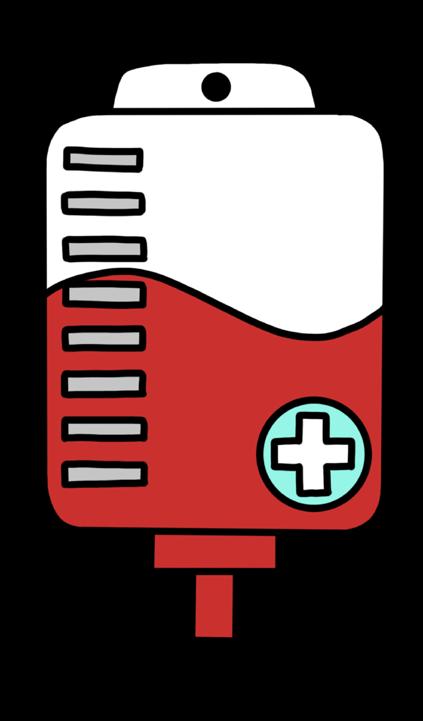
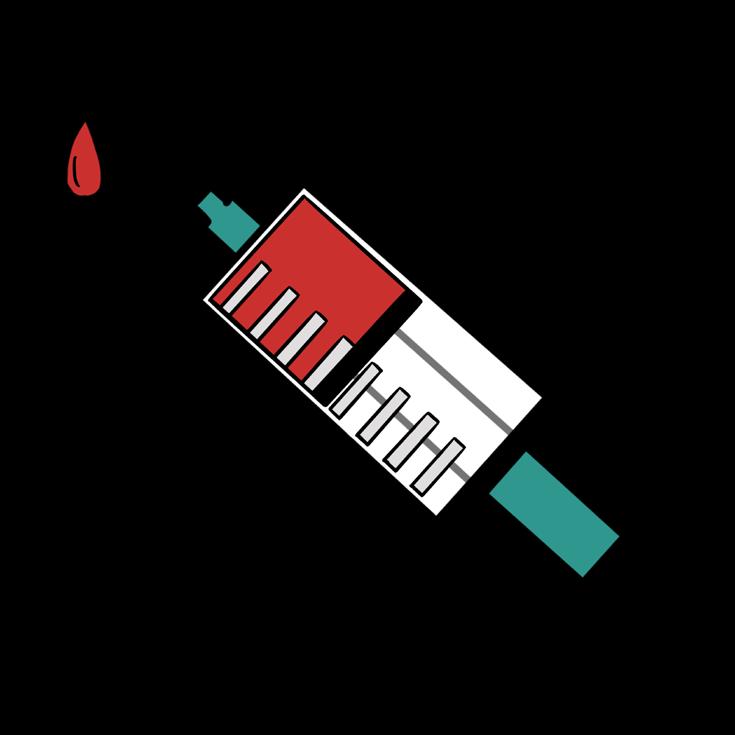
[9] “Thousands of Lismore residents remain in emergency accommodation.” Sky News, 27 Dec 2022, https://www.skynews.com.au/australia-news/thousands-of-lismore-residents-remain-in-emergency-accommodation/video/511a4f4195d4acb6a6005ee6a6744c8b.
[10] “Lismore Mayor Speaks on Flood-Affected Residents Still ‘Living in Cars’.” Sky News, 28 Dec 2022, https://www.skynews.com.au/australia-news/lismoremayor-speaks-on-floodaffected-residents-still-living-in-cars/video/c22672c5a001b1cae6ddf539ef0bbcee.
[11] “Lismore Flood Recovery Planning Package.” NSW Government, 16 Dec 2022, https://www.planning.nsw.gov.au/lismore-recovery-package.
[12] Ibid.
NATIONAL NEWS NATIONAL NEWS 27 26
EVERYTHING YOU NEED TO KNOW ABOUT CANBERRA’S DECRIMINALISATION OF ‘HARD’ DRUGS
Editorial Assistant, Eva Anido, reports on the new legislative changes in Canberra, detailing the decriminalisation of certain ‘hard drugs’ and what this means.

A big step in Australia’s war on drugs was made in the ACT legislative assembly on the evening of October 20 2022. A new law was passed to decriminalise small amounts of some ‘hard’ drugs in the territory.
The drugs included are: [1]
1.5 grams of cocaine
1.5 grams amphetamine
1.5 grams MDMA
1.5 grams methamphetamine
1 gram of heroin
This isn’t Canberra’s first time leading drug reform. The new law follows the ACT’s 2019 cannabis legalisation. There are however some important differences between the two laws. For one, the amount of cannabis one can possess is far
50g of dried cannabis or 150g of fresh cannabis in your possession legally. It still remains illegal for those under 18. It also remains a crime to drive with it in your system. This is important to consider as the drug can stay in your system for anywhere between 3 days to a month depending on how often you use it.
Another important difference between the two laws is that ‘hard’ drugs have been ‘decriminalised’ whilst cannabis has been ‘legalised’. So, if you stay within your limits using cannabis you will not incur a penalty. [2] Whereas, if you are found to possess any of the ‘hard’ drugs listed within the limits mentioned, you will receive a fine of $100. Unlike before, in the ACT if you are found with the listed drugs in your possession you will not be committing a crime, meaning you can’t be arrested or have a drug crime listed on your criminal history. The possession of ‘hard’ drugs will be treated more like an infraction, similar to littering and other petty offences. [3]
Only around 10 people each year are charged and found guilty for possession of this size in Canberra, and the move to decriminalise these drugs was found to be “overwhelmingly” supported. This information was provided by Health Minister Rachel Stephen-Smith in a press conference following the official news of the decriminalisation of these ‘hard’ drugs. She stated, “the harm associated with drug use is a health issue and treating drug use as a criminal matter does not help addicts.” The health minister found that this new law was a far better way to protect the community’s well-being. [4]
However, there are some who believe this isn’t enough. The chief executive of the organisation Unharm, which promotes the safe and legal use of drugs, didn’t believe this law reform was an effective change, stating, “this is not going to solve any problems — all it’s going to do is create new problems.”
He discussed that the fines will likely target marginalised groups, such as Aboriginal and Torres Strait Islander people and people who are homeless, as police will possess complete discretion. [5]
Other federal officials have disagreed with the reform as well, including the shadow attorney-general, Jeremy Hanson. When asked whether he supported the change he replied, “I’m not going to support anything that’s going to make life more dangerous for police and society.” He explained that the already low number of drug related prosecutions informed by the health minister indicated the decriminalisation was unnecessary. [6]
To aid in the new law, further drug related rehabilitation programs will be available for those fined for possessing these quantities of drugs. Canberra is also one of Australia’s territories that has experimented with pill testing stands at music festivals. Following the decriminalisation of these ‘hard’ drugs there is now a fixed pill testing centre in Canberra undergoing a 6 month trial. Along with professionals testing the drugs, there are also nurses present to provide care and information regarding drug use. [7]
Canberra has a reputation of being a leader in law reform. It will be interesting to see how this pans out in the territory and how it may be adopted in other states and territories around the country.
by Eva Anido
[1] Tywford, Lotty. “ACT Passes Drug Decriminalisation Laws: Here’s What it Means.” Riotact, 12 October 2022, https://the-riotact.com/act-passes-drug-decriminalisation-laws-heres-what-it-means/605336.
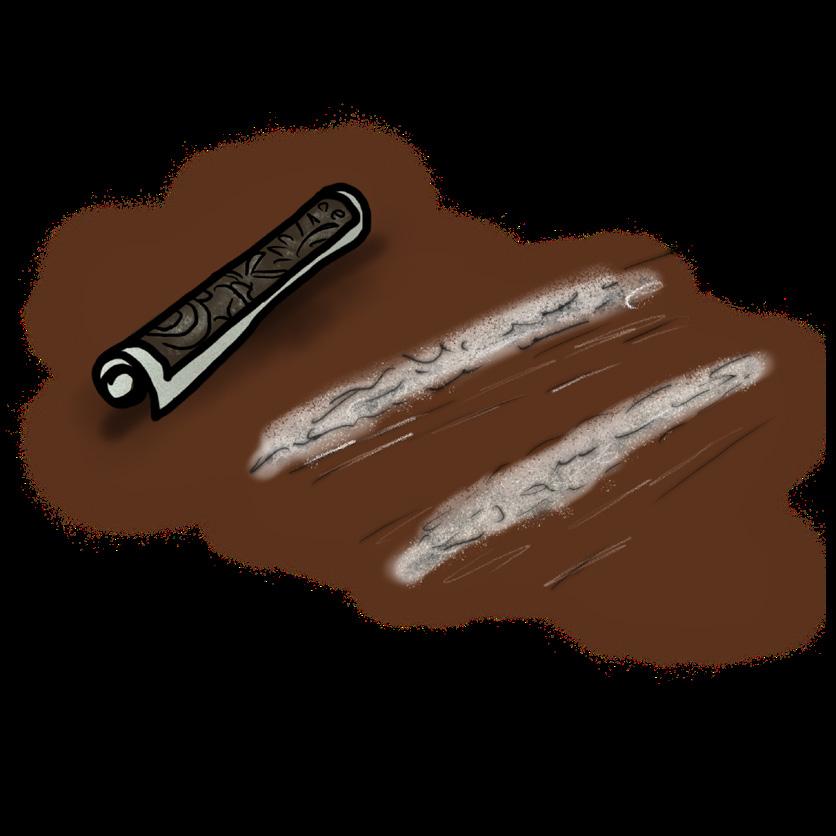
[2] “Cannabis Laws Youth Centre Act.” Legal Aid Act, 7 August 2021, https://www.legalaidact.org.au/sites/default/files/files/publications/Cannabis_YLC_updated_16.09.2021.pdf.
[3] Ibid.
[4] Mannheim, Markus. “ACT Government Agrees to Decriminalise Small Amounts of Illicit Drugs, Such as Ice, Heroin and Cocaine.” ABC News, 9 June 2022, https://www.abc.net.au/news/2022-06-09/small-amounts-of-illicit-drugs-to-be-decriminalised-in-canberra/101139060.
[5] Ibid.
[6] Ibid.
[7] “An Australian First: Canberra’s Fixed Pill Testing Site.” Alcohol and Drug Foundation, 25 July 2022, https://adf.org.au/insights/aus-first-pilltesting-site/.
NATIONAL NEWS NATIONAL NEWS 29 28
THE FTX CONTROVERSY

Crypto? Sam Bankman-Fried? News Section
Editor Zoe van der Merwe delves into the collapse of FTX and its implications for people and businesses across the globe.
In December 2022, US prosecutors charged founder and former CEO of FTX, Sam Bankman-Fried, with numerous financial crimes and violations. The indictment stated that from 2019, Bankman-Fried intentionally defrauded FTX customers and investors, diverting their money to pay off his own expenses. [1]
Bankman-Fried was arrested in the Bahamas and subsequently extradited back to the US, a month after FTX filed for bankruptcy. He was charged with eight criminal violations, with the Justice Department alleging he committed “one of the biggest financial frauds in American history.” [2]
Prior to his downfall, Bankman-Fried was one of the wealthiest people in the world with an estimated net worth of 32 billion US dollars. Nicknamed the ‘King of Crypto’, he was known for efforts to legitimise and regulate the world of cryptocurrency. He often made substantial donations to charity and publicly used his money to help support struggling businesses.
Shortly before his arrest on December 12, Bankman-Fried claimed he never “knowingly” misused customer funds. [3]
However, the Securities and Exchange Commission (“SEC”) challenged this
assertion, arguing that he used funds siphoned to affiliate company Alameda Research, “as his personal piggy bank to buy luxury condominiums, support political campaigns, and make private investments, among other uses.” The SEC allege he built FTX on a “foundation of deception,” raising more than 1.8 billion dollars from investors all the while promoting FTX as “one of the safest buildings in crypto.” [4]
Bankman-Fried now owes investors and customers billions of dollars he is unable to pay back. Here in Australia alone, 30,000 customers have seen their life savings drained, with doubt any money will ever be recovered. [5] Other crypto firms and exchanges have also been forced to close, with more customers withdrawing their funds as a result of the unstable market.
Two of Bank man-Fried’s for mer colleagues
Caroline Ellison, former CEO of Al ameda, and Gary Wang, co-found er of FTX, both pleaded guilty to varying charges of fraud on De cember 19.
Sam-Bankman Fried, despite his arrest, was granted bail on December 21 with a record high bond of 250 million US dollars. He now faces house arrest while awaiting his upcoming trial. [7]
Chief executive, John Ray, who was named CEO of FTX after Bankman-Fried stepped down, is now overseeing the restructuring of the company. He stated that he had “never seen such an utter lack of record keeping”. [8] With no independent board to oversee company decisions and no internal controls, he compared Bankman Fried’s company practices to “old-fashioned embezzlement.” [9]
The FTX scandal has raised the call for clearer regulatory action in the cryptocurrency exchange. Paul Mazzola, a former international banking executive turned financial researcher, argues that reporting and governance requirements and conflict of interest rules should be-
come prioritized. However, he adds that the regulatory changes to the world of crypto must be introduced with careful consideration as to prevent stifling innovation. [10]
by Zoe van der Merwe
[1] “Cryptocurrency FTX ex-CEO Sam Bankman-Fried Charged with Conspiracy to Commit Fraud After Bahamas Arrest.” ABC News, 13 Dec 2022, https://www.abc.net.au/news/2022-12-13/ftx-cryptocurrency-sam-bankman-friedcharged-with-fraud/101769030.
[2] Groch, Sherryn. “How Did FTX Go Bust – and What Does It Mean for Crypto?.” The Sydney Morning Herald, 22 Dec 2022, https://www.smh.com.au/business/banking-and-finance/how-did-ftx-go-bust-and-what-does-it-mean-forcrypto-20221216-p5c6zo.html.

[3] Ibid.
[4] Ibid.
[7] “FTX Founder Released to Parents on $250m Bail.” BBC News, 23 Dec 2022, https://www.bbc.com/news/business-64068810. [8]
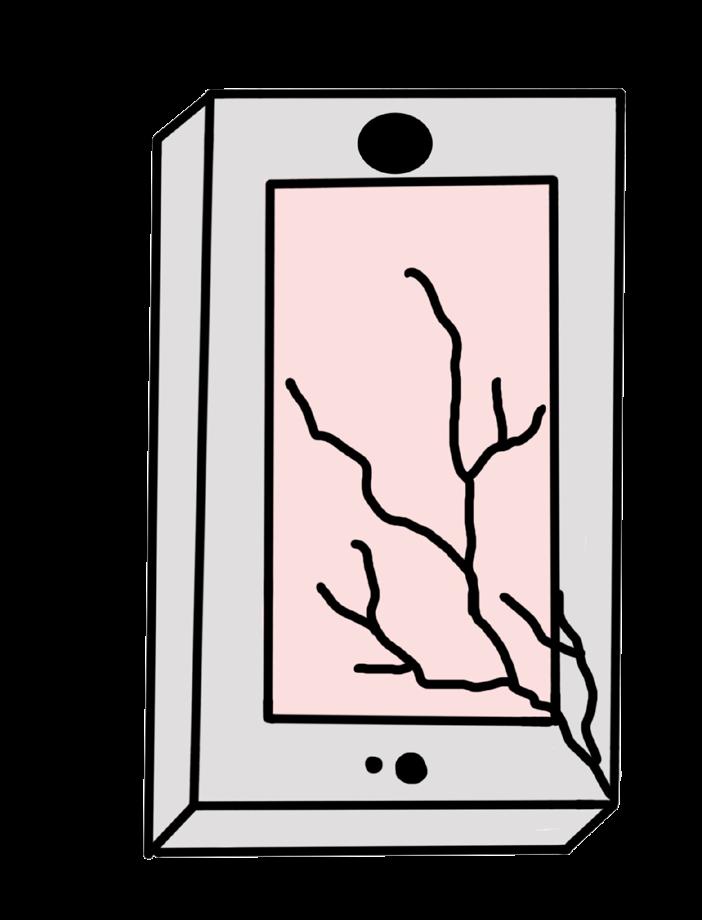
[5] Ibid.
[6] Ibid.
Ibid.
Ibid.
Ibid. INTERNATIONAL NEWS INTERNATIONAL NEWS 31 30
[9]
[10]
ASEXUAL ROMANTICISM
Freya Petterson writes at the crossroads of clarity and romance, navigating a path full of teen prejudices, misconceptions, and self-assurance, blooming with important questions.

I’ve always been a romantic person. As far back as I can remember, I was in love with love. I’m the type of person who loves writing sappy letters, happy endings, and who really is a sucker for the “power of love saves the day” trope in cartoons. I had a lot going on when I was younger, and a lot I had yet to figure out about myself. But I at least felt certain I’d fall in love someday. I didn’t think to question it as an inevitability.
I’m also asexual. This was a realisation I only fully came to in my later teen years, but it’s no less a part of who I am.
In primary school, romance was only an abstract concept, suitable for whispered conversations interspersed with bouts of giggling. “Dating” meant hanging out with a boy at lunchtime and holding hands on the school bus. I felt that I understood the concept well enough. I also read stories where people would fall in love and enter relationships – late night phone calls, heartfelt promises, and unwavering adoration.
High school was different. Dating was something people took seriously, and there were sex-education classes which stressed the importance of sex in any healthy adult relationship. This period also marked the advent of my introduction to the world of non-straightness. I positioned myself firmly in the role of “supportive ally” for the first two years of high school. At the time, the breadth of my knowledge extended only to the big four labels (Lesbian, Gay, Bisexual, Transgender) and since I didn’t feel particularly drawn to any I chose the safer route of keeping on the same.
I don’t remember the first time I saw the word “asexual” written online, but I’m certain it was in the context of a medical diagnosis or trauma state. Frankly, this was terrifying. I was fifteen at the time, though, and it was too overwhelming a thing to consider. I decided I must be bisexual since I felt equal attraction to all genders (none).
I think it took me so long to realise I was asexual at that age because I was reading so much, and relationships in PG13+ books never really mention sex anyway. I didn’t realise there was anything missing in these fictional depictions of love.
I remember very vividly the moment I realised there was a disconnect for me somewhere.
It was in year nine, during lunch, and I was sitting with a group of kids who unofficially were known as “the queer kids.” A friend of mine dared everyone to list five fictional characters of our same gender who we’d have sex with given the chance (all hypothetical of course, no one was ready yet to outright identify as anything other than straight). So, I took a mental catalogue of all my favourite female characters in the media and narrowed that down by looks and age to come up with a list of five girls whose names I could present confidently.
I remember my friend asking me shocked, “Wait you’d actually have sex with (character)?”
FEATURES 33
My immediate answer was, “No, of course not,” because my list was all hypothetical and not at all real. I was told that I’d misunderstood the assignment and everyone had a good laugh about it.
I started thinking more about it later on though, about whether or not I’d ever felt anything but admiration and fondness for anyone (fictional or otherwise). After settling on a definitive No, I rationalised that I was still too young to be worrying about this stuff. And again, I decided to ignore it.
I liked being close with people, sharing food and holding hands, borrowing someone’s shoulder for a mid-class nap. I liked writing poetry, and I would craft letters for my friends full of poetry and pencil-line hearts, because I liked to remind the people I loved that I loved them. This translated pretty well for most of my male friends into “flirting” which left me even more confused. I started to feel that I should be extra careful about not giving anyone the wrong idea. One time a boy asked me out because I’d shared some strawberries with him.
At seventeen I was becoming more comfortable with the label “asexual” and more ready to accept that maybe my life was going to be different to the life I’d always pictured. I remember a friend of mine cautioning me against deciding too quickly, because how could I know if I never tried? This felt kind of ridiculous given that the only semi-romantic feelings I’d ever felt before had been strictly fictional. What was the point in basing my identity around some far-off hypothetical that I could not picture if I tried? I’d never had a crush before. I’d even started to wonder (resignedly) if maybe asexual-aromantic was the appropriate term for someone like me.
Then I moved schools – to a performing arts specialised establishment – and I fell hard and fast for a girl.
Then, for a moment, it all seemed to make sense.
ASEXUAL (LESBIAN)
In actuality, it had become even more confusing. Now that I know what romantic feelings feel like, and I’m certain I am capable of them, I have to face the possibility that such a thing might be out of reach for someone like me.
I tried online dating recently. I put the label “asexual” on the top of my profile and made sure to mention it again at least once in conversation. I went on two or three dates with a girl who seemed to understand, but later said she worried she was “giving me the wrong idea” because I’d invited her to hang out at my place. We fell out of touch after that.
I genuinely don’t know how to be any more straight-forward than this.
What I actually want is to ask upfront and straight away: “How much does sex matter to you? Could you be happy without it?” Unfortunately, these make for pretty shit icebreakers.
Every piece of supportive guidance I’ve seen or read, online or within my own social sphere, is geared towards a single-minded suggestion that “you’ll find another asexual person.” This is the answer given as opposed to an otherwise understood truth that I will not be accepted by anyone “normal.”
I don’t mean to imply I would be unhappy to find someone who is also asexual and with
whom a romantic attraction could be fostered, just that the way this suggestion is often posed to me is in a deflective way, not a helpful way. It feels dismissive and like a bleak reminder that I won’t ever be enough. As does the suggestion that I give more importance to friendships because surely that’s what I’m actually looking for?
I would be happy if my family was made up of friendships and platonic bonds, but friendship is so often sidelined in the face of romance and I want someone I can trust to stay. I don’t want to force anyone to give up something they feel is necessary in a romantic relationship. But is it really so completely black and white? Maybe it’s my fault because I love the idea of romance as it is presented in PG13+ fiction, but if love is so powerful then why is it rendered dead in the face of something as inconsequential as sex?
If sex is a requirement for some people, then fine, but how do I know for whom this is true? (Is it the majority?) I don’t know how to put myself out there living with a fucking sword over my head, knowing that love will not be enough for some. I am so scared to give all of myself to someone and have them see me as incomplete and therefore incompatible in return.
If someone saw me, and before learning of my orientation, felt that I was ideal in every other way… Doesn’t it say painfully too much about my worth as a person that after learning they might just as easily toss me aside?
A year or so ago, I read a book called Loveless by Alice Oseman. In it, an asexual aromantic girl is propositioned by a boy who includes in his confession a promise that he wouldn’t need sex to be happy if he could be happy with her. I had to take a break from reading at that point because I was crying too much.
How many people are like that? How many people aren’t asexual but consider love to be the more important factor in a relationship over sex? Are there any?
I guess what I’m saying is… I wish people could understand the way I feel. I wish more people talked about dating and asexuality.
by Freya Petterson
Glossary
ASEXUAL: A person who experiences little or no sexual feelings or desires, or who is not sexually attracted to anyone.
AROMANTIC: A person who experiences little or no romantic attraction to anyone, who does not have romantic feelings.
ASEXUAL AROMANTIC: A person who experiences little or no sexual or romantic attraction to anyone.
FEATURES FEATURES 35 34
Maybe I’m Just Sick
In times of loneliness and vulnerability, songs are our greatest solace. Nilab Siddiqi reflects on the honesty and isolation of identity through the lens of Raleigh Richie’s song “Party Fear.”
It’s an average day in my little life. It’s evening, I’m sprawled atop my bed, Spotify playlist on shuffle, staring at my ceiling and having a random conversation with myself.
A song called “Party Fear” by Raleigh Ritchie comes on, and as the lyrics move along and I listen to what is being sung, I feel myself becoming more and more upset. The song isn’t sad, per se, but as an exhausted 21-year-old, anything and everything with a hint of vulnerability starts to feel like a personal insult.
“I don’t know why I am like this / Honestly I really try.” [1]
I sigh as this particular lyric is crooned out.
I’d like to think that I’ve been an upfront individual till this point in my life, but that simply is not the case. For as long as I can remember, I have been hiding parts of myself. From my parents, from my siblings, from my cousins, from my friends, from my co-workers, from absolutely everyone. Frankly, it’s the only way I know how to live.
Looking back now, I can confidently say that there’s always been something different about me. I don’t mean that in a self-centred way, I mean it in a “why don’t I function like everyone else?” kinda way. But when I was just a kid, I had no idea what was “wrong” with me or how to stop being that way.
As I grew older, I began to try more and more to fit in. All that meant was that I began hiding things about myself. It didn’t matter if I was struggling, all I ever wanted was for people to stop staring at me, to stop hating me for things out of my control, and so I began to lie.
“I don’t want to be here / I wish I could disappear / Dig a hole and climb into it.” [2] This lyric digs even deeper.
I can’t remember the last time it didn’t drive me into a terrible spiral of crippling anxiety to go to a dinner, a party, a date, an appointment, anything. I can’t explain to anyone why. I don’t really know what I’m afraid of, all I know is that fear is potent and all-consuming. It makes my heart race, my lungs constrict, my head swoon, my palms sweat, my world shake.

Of course, I’ve tried. I’ve tried to be “normal,” tried to go to these parties, tried to do what everyone else did. Suffice to say, it didn’t stick.
100% of the time, I panic so hard my vision goes black, and I have to squeeze my eyes shut and pretend my hair is loose, and I’m running into a beautiful little copse, or diving into the still waters of the beach, or, my personal favourite, curling into a little ball and pressing myself into the corner of my room.
These are the only thoughts that tend to calm me down. But, sometimes, they just make me mad. Make me wonder why the fuck I’m here, why am I letting a bunch of people make me feel like a freak? What have I done wrong? Why does any of it matter?
Why the fuck am I here?
“You talk first and I’ll reply / We’ll just stand here otherwise.” [3]
Now, this is one bitch of a line.
I never know how to talk. I’ve never known how to talk.
I’m not stupid, I know I’m an intelligent and hard-working person. I just don’t get the talking thing, and it gives me the shits. It’s not normal to sit in bed a full week before a dinner and panic about how I’m going to introduce myself to the people attending. I know that, but it’s just how I am.
It sucks because I kind of love talking sometimes. I have so many thoughts about absolutely everything. Planets? Yeah. Windows? Yeah. Monkeys? Yeah. Queer vampires? Yeah. Fucking couches? Yeah! But I never know how to approach it and, most of the time, it just isn’t in my instinct to talk. And so, people just assume I’m mean, rude, stuck up. I guess it’s easier for them to jump to that conclusion than to think critically about anything.
So, I lie. I say I’m sick, I say I’m tired, I say my family needs me. It’s easier to avoid, avoid, avoid, than to try and fail and be hated.
Breathe. [4]
I think I’m much more honest these days. What I’m writing right this second is proof of that. I know now that I’m probably not “normal,” whatever the fuck that’s supposed to mean anyway, but I think I’m tired of caring so much.
Hearing songs like this from people I respect so much have been absolutely crucial in me being okay with being me. I can’t even begin to explain how comforting it is to be seen and understood.
by Nilab Siddiqi
[1]
https://open.spotify.com/track/5TagOSob2rhCeltUpSyOP4?si=9b883096230946c7 [2] Ibid. [3] Ibid. [4] Ibid. FEATURES FEATURES 37 36
Ritchie, Raleigh. “Party Fear.” Spotify.
If You Had A Crystal Ball
The future is fickle and unclear, as is the fate of any of our relationships. Take a trip with Sarah Sol as she uncovers the anxieties which manifest in the face of the unknown when it comes to love.
Have you ever looked at your significant other and thought, “Damn, I really hope you’re not an axe murderer?”
I have.
Some facts:
• Intimate partner homicide is the most common form of homicide in Australia. [1]
• In 2021 there were 55,244 divorces granted in Australia. [2]
• 52.9 per cent of single mothers are millennials. [3]
• 36 per cent of Gen X (aged 42-57) are divorced. [4]
My parents fall into this category. What does that mean for me?
My mother married the wrong man. Her scars still run through our family’s veins, and I’m afraid the same will happen to me.
I’m not going to pretend my relationship is perfect, but… it is. He treats me right, he buys me bouquets of daf fodils, he texts me when he’s busy and shows me all five love languages, but he’s clumsy too. Our relationship is clumsy. We get mad, we bicker, we argue, we have different political views. I’m all “save the earth” and he’s all “work the people.” But my boyfriend and my relationship are perfect. Isn’t it?
What if this handsome, beautiful, caring man is actually an axe murderer, and he’s just really good at lying?
What if this is a situation like Joe and Beck from Netflix’s You? My boyfriend has done nothing to suggest he is in any way disloyal or untrustworthy, but what if I marry the wrong man, just like my mother? Even the tarot cards don’t have answers to my questions…but what about a crystal ball?

What if you had a crystal ball that could tell you the truth about any ONE thing, what would you want to know?
Would you ask how long you live for, and live in constant fear of that date? Or would you ask how you die and be satisfied with the answer? Would you ask about your greatest flaws and weaknesses, so you could improve yourself? Would you ask if you were on the right path, or what degree you should really be studying? Will you be married? If so, will it be with the person you are with now? Will you divorce or stay single forever? Would you ask if aliens really do exist? If monkeys will wage a war against humanity like in Rise of the Planet of the Apes?
I would ask if I was going to marry the right person.
Because, even though the man who stands before me is perfect in every way, my messed up soul is always afraid he isn’t. Maybe it will be another case like Shanteari Weems5, or maybe it will be a fairy tale like Rapunzel.
If I had a crystal ball, I would ask it questions of the future, and I’d hope it had precise answers, not twisted signs and angel numbers, something with more detail than what tarot cards and clear crystals can offer.
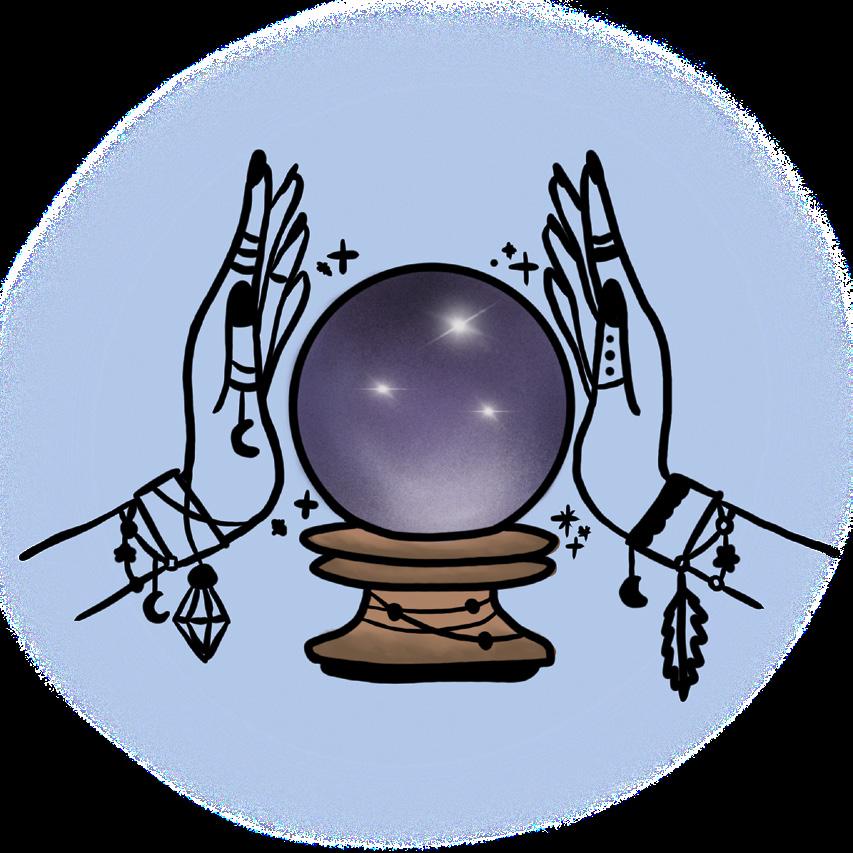
But I don’t have a crystal ball. So, I must trust my gut, my intuition. I have to trust the symbolism behind the pictures on the tarot cards, the numbers on my clock, the odd repetitive coincidence of lost dogs.
But if you had a crystal ball, could you handle its truth?
Imagine your partner called you ugly, said you looked funny with your glasses on. Well they were being honest, weren’t they? Would you be happy that they were truthful, or hurt by their words? Imagine if your brother told you he hated you. What if your uncle called you dumb and told you to give up on your dreams because you would never make it? What if your father told you his biggest mistake was having you as a child? What if your teachers told you to drop out of university because you were useless and doomed to fail?
What if this all-knowing crystal ball gleamed a lapis blue and told you that your family and friends would abandon you, that you were the unfortunate sibling, that you would die alone, unremembered by a dying planet? What if it told you of gruesome war, of torture or death? What would you do with the truth?
If you had a crystal ball, would you be happy with the truth it gave you? Or would you shatter it to pieces, throw it off a building, roll it down a mountain and choose to live with false hope and unachievable dreams?
What would your question be if you had a crystal ball? Could you handle the truth?
Or would you ask your crystal ball nothing at all?
by Sarah Soyali
FEATURES FEATURES 39 38
The Housewife
Timothee challenges the feminist ideal of the self-sufficient woman, reflecting on the power of stay-at-home mums and redefining the value of labour.
The irony
When I was a young child going to school in Vietnam, they had us write down what our parents' occupations were in a little report notebook. My dad was a "businessman," and my mum was a "housewife." It was the norm back then, or so I was told.
More than ten years have passed since, and I've moved from a small school in small Vietnam to a big university in big Australia. Ever since then, I've been taught, over and over, by academic and media institutions alike, that being a housewife was not a real job. That housewives did not do much besides cooking and cleaning and being pretty for their husbands so they could use up their money for vapid pleasures. That modern women should be strong and independent and build a career of their own if they wanted to be taken seriously and treated equally to men.
Young and impressionable me bought into this false “feminist” narrative, simply because I wanted to be seen as useful and worthy like my male peers.
It didn't help either that my dad, who at this point has had an extremely rough divorce with my mum – I'll save you the details, otherwise it will be a trauma dump – and despised her extremely, fueled me with his so-called care and sense of duty by ridiculing her, minimising our contact and telling me to try harder to not end up like her. My paternal side of the family, who I lived with since moving to Australia, happily chimed in with the same sentiment, repeating constantly how she failed to be a good mum because she was with my dad for money and didn't raise her children right (they supposedly got this idea because my brother and I weren't getting along with them, though on my end it was because they gave me depression).
And yet, as I approach my early twenties, the one sentence I most often hear at family gatherings is, "You should study hard, so you can get a rich husband and a permanent residency here." The same went for my female cousins, who, regardless of their occupation, lifestyle, or whatever else, were expected to settle down with a man one day.
"What. The. Fuck?" I thought to myself every time, but I had to keep a polite smile and nod whenever the same sentence was repeated. The inconsistencies in my family's narratives and actions – the belittling of stay-at-home mums because of their dependency while simultaneously encouraging me to put my future into the hands of a man – caused me anger and humiliation at the same time.
But it wasn't just family. In fact, it's quite easy to find society's ironic narrative on motherhood across the media and politics: on the one hand, we're telling women it's selfish to not marry and have kids, and use morality and religious reasons to drill this point into their head; but on the other hand, our economy, politics, and societal values make it nearly impossible to raise children in a way that's optimal for the kid's growth and balanced for the mum's health.
Slowly, I realised the fact of the matter is that there is no easy winning situation for women regardless of our path. Whether you're devoting life to family or work or trying to balance both, in the end you're bound to lose something – whether that's freedom, respect, dignity, or sanity.
The truth
Housewives like my mum don't make a single dime for the sheer labour they put into the household. They sacrifice their entire future – education, career, and social life – to raise the kids and keep the family functioning. Not only do their efforts often go unnoticed, but they're bullied into thinking of themselves as helpless and unworthy compared to the male breadwinners in the household.
My mum married my dad at a young age – she never explicitly stated when, but had my big brother when she was 21 – and from my knowledge, didn’t even finish high school. She was the sixth of nine children of her single mother, and assumed the role of caretaker to some of her siblings. A few of her siblings died for various reasons, and to this date I’ve only met two of her sisters, one of whom recently died due to a stroke. My mum rarely spoke about herself or how she felt about my dad, and while I was there when their relationship hadn’t turned sour, my furthest childhood memory only goes back to when they started fighting, around the time I was seven or eight years old. And ever since then, it had been a nightmare every time they crossed paths.
As I grew up, I finally discerned that my mum was the one who pulled my broken family together and kept us in place for the 15 years she was prominent in my life. Despite the trauma that she had to bear, she did the best she could to provide me a childhood like the other kids. To love and raise a sickly and anxious child in a cold and turbulent marriage ridden with violence and mistrust until the child's teenage years passed was not easy. Her job was a real, gruelling and laborious job, and it was one of the hardest ones out there in the world.
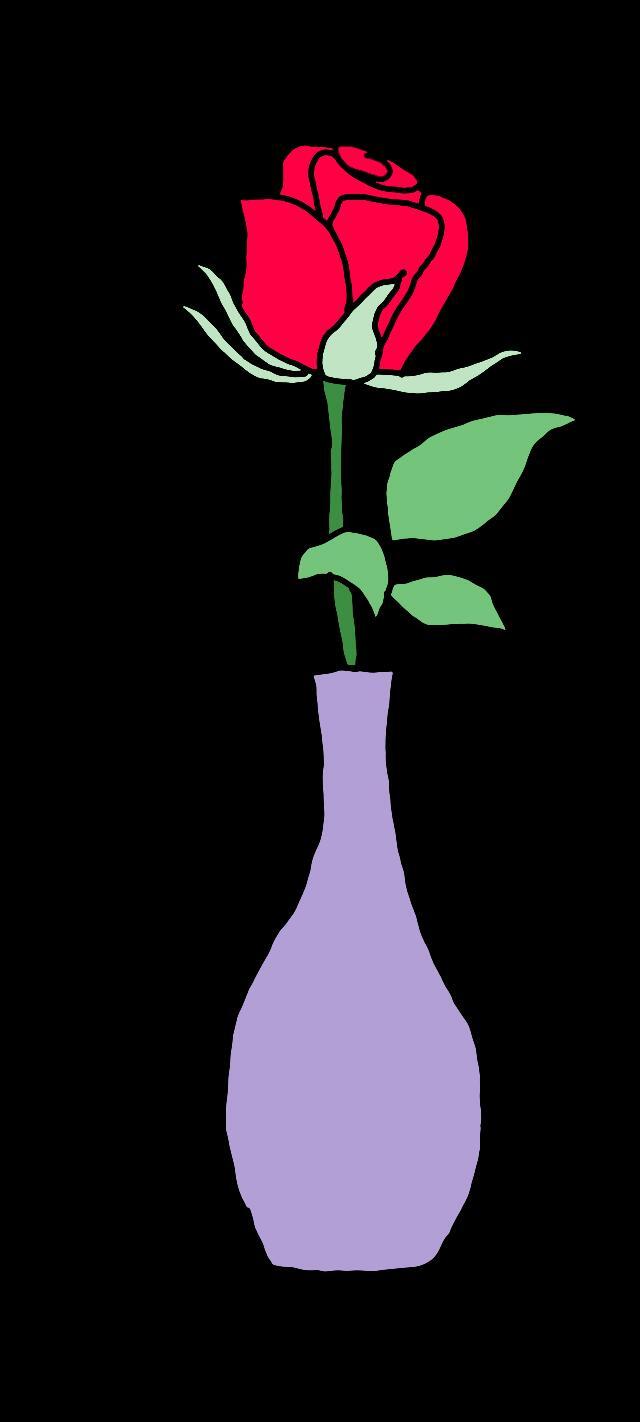
It came to me, now that I’ve grown from child to woman and had a chance to reflect on both our lives, that feminism isn't about measuring against the male standards that I’ve once set my eyes on. It's about living to the fullest despite the odds against being female.
Stay-at-home mum or corporate baddie (and anything in between), all women are valuable women. All are equally worthy of a better life. And to move towards that vision, the first thing we need to do is to shift away from the patriarchal lens through which we look at ourselves. Because if we can't see our own worth, how are we supposed to show it to the rest of the world?
by Timothee Luong
FEATURES FEATURES 41 40
From Best Friends to Familiar Strangers
With the retrospective and melancholic lens of a girl growing up, Holly Mitchell ruminates on lost friendships and platonic heartbreaks.
Platonic heartbreak is a quiet pain that we all endure at one point, and it is greatly overshadowed by the agony of its infamous relative: romantic heartbreak. Little convincing is needed that romantic heartbreak stings, especially since it is something that gets reiterated in literally every single song to ever exist. Picking your melodic poison is a challenge alleviated when artists ranging from Fleetwood Mac to the cast of Glee have a catalogue of tunes to accompany you through any nasty breakup. Can the same really be said for when a friendship suddenly turns sour, and you are haunted by the familiarity of a now-stranger?

Hurling the Best half of the necklace into the sodden grass while hoping that the girl donning the Friends half suffers endless misery was the 7-year-old girl's first run-in with that feeling. Down the drain goes good pocket money spent on a wasted necklace and an even more wasted friendship. That is, at least, until all was forgiven by recess time during an exchange of a muesli bar for a packet of Monster Noodles. A glitter-gel-penned-letter offering a sleepover on the weekend sealed the deal: we’d be best friends forever! We would have loved to remain in that place where all it took to repair a friendship was a bit of time and a handwritten pinkie promise. It was a place where weekends were filled with fairy potions, Barbie’s latest cinematic masterpiece, and creating our own fashion magazines. Naivete was providing us with an absolute sense of euphoria.
That place eventually vanished when we celebrated turning 13, and in our hands was a mobile phone. Our parents were reluctantly swayed into purchasing one after an earful of constant whining about how all the other girls at school had a phone, and that we just had to have one too! The slender device not only bought all the bad days at school home, but it kept them in the pocket of our tattered jeans. We would opt to go to the movies with our mums instead of our best friend some weekends, even if it was the most uncool thing imaginable at the time. We were willing to endure such humiliation after being left on read by our best friend online, which caused an ugly bitterness to rot in our juvenile minds.
High school graduation happens at 18; with arms-linked and suffocating hugs exchanged, we fail to remember why we cared so much about our best friend not replying to us five years prior. Each of us had our own overwhelming determination to get away from home and make our most ludicrous daydreams come true. We knew this meant sacrificing seeing each other every day, but it came as a shock that this eventually meant no more random drive-through Maccas, no more impromptu movie nights, and no more communication
outside of the awkward text message sent on each other’s birthdays. “Hope you’re going well, let’s catch up soon! xxx” is the empty promise that sustains a friendship hanging by a thread. Social media created an easy way out; a hollow like, comment, or a tag in a “thinking of you” post replaces any need for a proper conversation. We’re pretty much all guilty of it, yet it seems to be our inevitable, depressing fate.
These fluctuating friendships make for some excruciatingly lonely moments in life. We drive ourselves wild, wondering into the late night what went wrong and how things could have been different. We remember hearing about those who grew up and grew apart, and how we used to roll our eyes. We would even crack jokes, believing that we’re certainly an exception to that ridiculous concept. Now in separate towns leading separate lives, we both come to realise how wrong we were, and we laugh humourlessly thinking back to our younger selves. We call our mums and ask what movies are playing at the moment she wants to see. We hover our finger over the Send button on a silly video that we know would produce an eruption of laughter for the other, but instead opt for the wiser choice: Delete. We learn to like going out for solo adventures, and we learn to cope with being on our own sometimes.
We can say sometimes, because we then enter our twenties where opportunities for forming new relationships are abundant. We’ll meet a person or two, encouraged to tag along to an event with them that we’d never normally attend, and then shockingly find ourselves having a good time. Repeating that process is about as fun as pulling teeth; we may find ourselves heaving around our brick of a laptop to some awkward study sessions in the name of sparking friendships. It does, however, end up with us meeting some truly fantastic people. With our constantly clashing uni, work, and random-extra-life-crap schedules, we come to learn that we won’t see these friends as much as we did our friends in high school. It is a big change that no one really warns us about, but it is all part of learning how to do things on our own sometimes.
Friendship is fragile, and that is because our time with particular people and moments are painfully limited. We know that realistically, our current closest friends are unlikely to be close friends in five years time. We know this, and yet the heartbreak of losing a good platonic relationship is a shocking, hurtful ache every time. Perhaps our parents were right when they would tell us we don’t know what we have until it's gone. It sucks when they’re right.
by Holly Mitchell
FEATURES FEATURES 43 42
ANGELIC ACROBAT
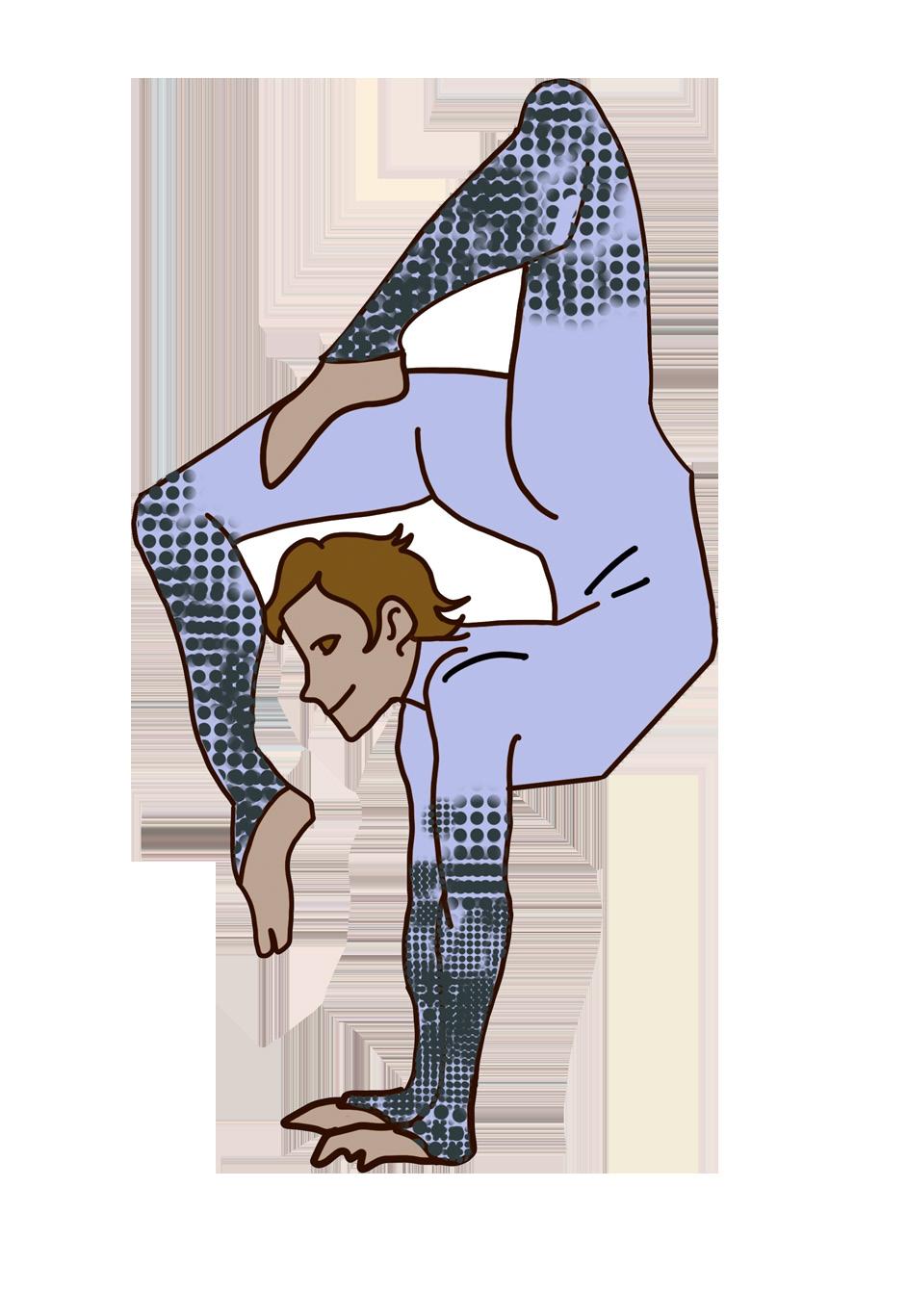
The circus is a masterpiece: an orchestrated performance executed by talented actors who bring exhilaration to those who are watching. I remember when my mother took me to the circus. She glorified it; consumed her love and passion into a magical place filled with people flying in a blur of colours, whilst I inhaled pink, fluffy clouds that danced on my tongue and listened to the mighty roar of the king. The king was so fierce even the ground quivered in fear. I remember the touch of the cold, metal chairs against my flesh, causing goosebumps. I held on tight as I jumped up with excitement. I remember the adrenaline coursing through my veins as the king jumped through the flames and emerged unharmed: the sound of his victory rang in my ears.
When I looked up into the heavens, my heartbeat elevated. It was my favourite part of the show, to see the angels of colour. The mastermind of these angels wore a tight suit, swirled with glittering magic that stretched from head to toe and reached out to her majestic white feathered wings. I remember as she leapt out from her tower with such grace where her wings guided her down but never reached the ground. No, instead her majestic wings soared over the audience like the rising sun. She would perform many tricks, but the one everyone was waiting for was ‘The Rise
to Heaven’. The angel elegantly danced within her own grace and lifted herself back up into the air. I remember looking around the audience and seeing everyone off their seats. And in the silence of her own elegance, she disappeared into dust. I’ve seen this dance many times, each time more spectacular than the last.
The time had come. The angel was preparing, slowly moving around the ground, her legs spread and turned much like a ballerina would, spinning and leaping towards the centre, until she spun low, her body hugging the ground. Her wings wrapped around her body briefly before pushing up, sending her towards the sky. Only this time, she did not disperse. The angel’s wing had broken; her body flailed as it plummeted towards the ground.
The crowd fell silent; a heavy reality had lingered as the angel laid still. Her wings had ripped, and her smile faded. I remember sitting at the edge of my seat, the cotton candy dropped out of my hand, waiting for a signal; a movement; something to say the angel was not harmed. I remember the screams and sobs of the audience that cursed our ears as they announced her departure. A silence poisoned me. Unable to move, I stared not at the angel or the crowd, but at the sky. I stared at the heavens that never received a visit from its beloved angel. While the crowd around me scurried through the seats, it felt like my veins themselves were cemented. No power on this earth could move me. I remember the clown who embraced me with a warm, sorrowful hug.
“The angel may have fallen, but your mother rose to heaven”.
I remember the day my mother died.
by Emily Dojcinoski

CREATIVES
CREATIVES 45
A Definitive Guide to Glassware
Pink. Pink, pink, pink. The room is unapologetically pink. The electric fuchsia of the satin tablecloth really brings out the green in my eyes. Does it compliment my skin tone too? God, I shouldn’t have worn this colour on my lips. Pink is cool. Pink is rock and roll. I don’t need pink to prove my femininity – nor does it jeopardise my masculinity! It’s like a mantra bouncing around my otherwise empty brain as I set the table with my new ornate glassware set (it’s rose quartz, just in case you were wondering). It’s okay to like the colour pink. I add a few orange candles to mix it up, maybe even a green lily here, and a royal blue napkin there. God don’t tell the boys we’re stealing their things! It’s okay, they can keep their beer (just for tonight)!
A cocktail or some wine? Gin or champagne? Tall or short? I’ll be your waiter tonight, but you decide. Someone’s drink of choice says a lot about them – we know this. But what if femininity could be boiled down to mere glassware. What if understanding us was as simple as understanding the appropriate use of the different varieties? In hindsight, maybe I should’ve waited until after my guests had arrived to start drinking…
As I glance around the table, I notice Ginny constantly smoothing out her hair. She claims to not take herself too seriously, but the $400 blowout and decorative lime wedge forced onto the rim of her glass beg to differ. We’re just in my small-town dining room, for crying out loud. I don’t even own this house! I watch as the juice falls down the outside, and a seed pops ever so innocently into the carbonated water. I watch as she takes a sip. The seed is gone. I smile. However, the mix of unblemished glass and fresh juice causes Ginny to lose her grip. Suddenly the fuchsia becomes spoiled
with a deep purple gin blotch, with the broken stem of the glass sticking out of it like a dagger to the chest. It’s a ghastly sight. With the legs of a supermodel and the tits of a Hooters server, it’s really a shame she hasn’t also got the brains to carry herself properly. Fuck you Ginny, that tablecloth was brand new too.
Meanwhile, Winona demands attention from the entire room with just her mere presence – in fact, it’s probably her fault Ginny ruined my bloody tablecloth. Anyway, not just because she’s five foot ten, but because she’s always been the prettiest of us all. She doesn’t speak up much, but instead takes on the role of observer. She’s careful not to raise her forearms from the edge of the table as she swirls her glass, takes a brief whiff, and then finally takes a conservative sip of the blood-red liquid. You see, she’s incredibly self-conscious of her arms, even in such a familiar setting; familiar doesn’t always mean comfortable. Winona much preferred a mojito as a teenager; by the end of the night, you’d have to pry the tall thin glass from her white-knuckled fingertips. Some may say she’s let herself go, maybe even become bland or distasteful. But the truth is, she’s just matured, and I envy her for that.
As Taylor takes a swig of their margarita (yes, a swig), I notice the way the grooves of the glass seem to be perfectly moulded around their fingers. They’re short and plump, and their nails are terribly bitten down. Unlike Winona, Taylor never grew up. They’re still drinking the same zesty concoction they did at eighteen – lord knows how, considering how some of those nights ended! They’ve tried on different suits of armour – as we all do – but none ever stuck quite like the ‘margi’.
The abruptness of their swig leads to sticky fingers and a guilty conscience. I pretend I don’t notice them rubbing the evidence on dimpled thighs beneath the tablecloth. It’s really the least I can do given the state of those nails.

These bubbles have gone to my head. Nonetheless, I balance the half-empty bottle against the brim of the delicate flute, lips pursed in concentration. My lanky limbs almost give way, but I catch myself just in time – as per usual. Without Ginny’s cleavage, Winona’s maturation, and Taylor’s self-assuredness –I’m just Charni. I’m 26 years old, I look like a teenage boy, and I’m drinking champagne because that’s what the girls on TV do at fancy dinner parties with their friends. I swear the girls on TV like their friends though. Where have I gone wrong? I love them, I really do – but I can’t help but feel as though I’m lacking something whenever they’re around. I can’t help but pick them apart, the same way I do myself. I’m so sick of this one-sided competition. God, I hope it’s one-sided.
The ice has now long melted, and I don’t know what’s to come of us yet, but what I do know is – I’m going to have one hell of a headache tomorrow.
The doorbell rings.
Ah excuse me, that’ll be the girls finally here.
by Jasmine Oke
CREATIVES 47 46
CREATIVES
Snow Globe

In my childhood, I had always gazed at my mother’s snow globe with wide, admiring eyes. Now, all I saw was red.
You see, I had just flopped onto my bed, unsuccessfully rubbing at the grime on my glasses. ly, I had thought, with a sigh of relief. It had been a long day, especially with my English teacher whining about my incorrect interpretation of The Tempest. Apparently Prospero wasn’t just a selfish megalomaniac, but rather a “complex human being.” All I can see is him ordering his kid around, but whatever.
Anyway, I had earned a nice long bout of ‘nothing time’ in my humble opinion. So, I slid my head phones over my ears, nestled back in the cushions, and clicked onto YouTube.
“Oi!” My mother yelled, flinging open the door before I could even begin a single video.
“What?” I groaned.
She narrowed her eyes at me. “Don’t you take that tone with me,” she warned. “I asked you to do the dishes this morning, and they’re still not done.”
I rolled my eyes. “I’ll do them later, OK? I just want to relax!”
“No, you always say you’ll do them later and guess who ends up doing them? Me,” she snapped, gripping the doorframe. “I have told you a million times that I have to have them done before I cook dinner. But do you ever listen? No.”
I leaned forward to cut in, but she was having none of it. “I am so sick and tired of finding you glued to your phone whenever I come in here. Do you ever do your homework? Do you ever do ANYTHING?”
I sat bolt upright, curling my hands into fists. “MUM!”
“If those dishes aren’t done by the time I get back from the store, don’t expect dinner. Ever.” She slammed the door shut behind her, and the sound of the front door closing came soon after.
I leapt from my bed, hurled my phone and headphones onto the mattress, and stalked to my mother’s room with her words still scalding my ears. It was on her bedside table – her snow globe, a.k.a. her most prized possession. I seized it, taking one last look.
Within the glistening glass, a miniature world, dusted with violet, lay dormant. A crystal cluster radiated from the centre, in which infinitesimally tiny houses had been carved. People the size of a pinprick were frozen in a moment in time; one pulled a milk cart from house to house, another dangled a rope from the top of a crystal spire to a friend down below, and two puppies splashed in a

puddle on the street, yet all were completely motionless. It was only when the dome was shaken that the scene would come alive; when the glitter rose from its slumber, swirled and eddied, scintillated and sank.
And that’s how we got here. Filled with rage at this thing that was so her didn’t think. It hurtled downwards, struck the floor… and shattered. Shards of glass radiated outwards, unfurling from the breakpoint like the wings of an an gel. For a moment, the destruction transfixed me, but then, it was over. The carpet was splattered with the ugly carcass of a once-beautiful treasure. Ruined.
Then, the world was coming apart, fragmenting, rearranging. The white ceiling of my mother’s bedroom bled into blackness studded with stars. The curtains peeled away, and an evening breeze swept back the bedside table, the bed, the wardrobe—
And then I was standing in an empty street. Only, I wasn’t me. Wrapped around me was a long, rose pink coat. It was so familiar that I knew at once it was my mother’s and that I was seeing through her eyes. Her heels clacked against the pavement in a slow and steady pace, leading herself, or me, or us through the enchanting nightscape. A young border collie ran a circle around us, tongue lolling and carefree, before it ran back to its playmate, a muddy husky puppy in a… a puddle…
With the truth slowly dawning on me, I watched with wonder as my mother raised her eyes, revealing the crystal city. Somehow, some way, I was in the snow globe. There was the father heaving his son up on a rope, and there was the milk boy, and there was the glitter wending its way through the sky like the Aurora Borealis. My jaw would have dropped if I’d had control over my own body.
Reaching her destination, my mother opened the door to one of the spires and stepped inside. To my confusion, what lay within wasn’t a sleepy inn with mugs of hot cocoa or a bakery stuffed with freshly baked bread. It was a hospital. The stench of bleach was like a slap to the face. Doctors armed with scissors, stethoscopes, and scalpels rushed past with patients in wheeled beds who moaned in agony or convulsed uncontrollably. A nurse struggled to hold a baby still enough to administer an injection, while its mother clutched its arm. The aircon was six degrees too cold and machinery wailed each time a metabolic rate dropped or a pulse slowed. My mother removed her coat, revealing an outfit of scrubs. She picked up a clipboard and made her way over to a woman in the corner.
“Ma’am, I’m so sorry to tell you this, but there was a complication with your husband’s surgery… ” her voice was soft and gentle, well-practiced at delivering bad news. But, as always, what followed was a violent explosion of rage, blame, and overwhelming grief. After the woman left, the rest of the day was a blur of rashes, tears, and broken bones, as well as yelling bosses and medicine bottles dropped in haste. By the time my mother finally dragged her feet out of the hospital and back onto the sparkling street, I could feel the exhaustion pressing down on her frame. I knew she was a nurse but… I had never known it was like this.
49
CREATIVES CREATIVES 49 48
The next house she stepped through turned out to be a train station, and I realised that in each house was a memory – a part of my mother’s life I couldn’t see beneath the shimmering exterior.
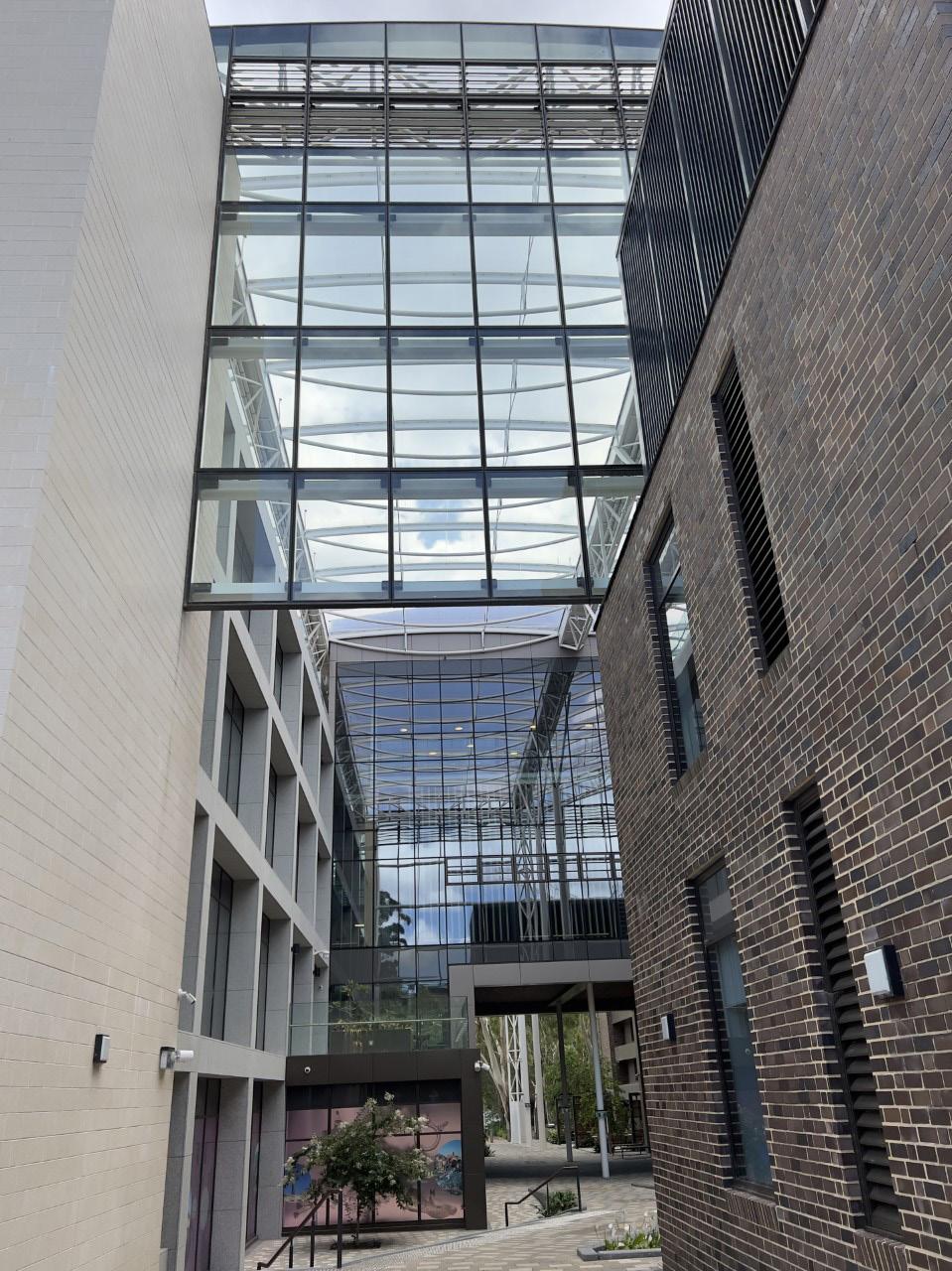
She took her seat on the train, and a man gripped one of the handholds right above her, ‘accidentally’ lurching into her when the train pulled into motion.
“Sorry, love,” he drawled, leaning so close she could smell the beer on his breath. “You a nurse?” He looked her up and down, eyes lingering too long. “‘Cause I’d let you give me a sponge bath.” He winked, flashing what I’m sure he thought was a winning smile.
I wish I could have punched him, but my mother was five foot two and she certainly hadn’t had tie for self-defence lessons with her hectic schedule. In her body, what could I do? All she did was mutter, “I’m married,” before she shoved her way past him and through the doors before it was even her stop.
After an hour of walking, I saw that there was a deep gouge in one of the crystals. My mother stepped right through it. On the other side lay a pile of dishes, crusted with day-old food scraps. Her fingers gripped the edges of the sink, hands raw from hand-sanitiser, latex gloves, and a day’s worth of manual labour. Dish soap and hot water seemed like a death sentence for her skin, and she just couldn’t bring herself to do it. And how could she ignore the stack of unopened mail building on the counter? Or the washing machine beeping, ready to be emptied, or the dog whining for food, or the empty pantry? And now she needed to cook dinner for me, who had done nothing since arriving home but crawl into bed. It was too much. A transparent teardrop traced her cheek and trickled into the grimy dish water.
I blinked. I was back in my body, staring at the snow globe in my hands. No shards lay on the floor. It was whole. Cautiously, I placed it back on the bedside table, walked downstairs, and found my mother unpacking groceries.


She looked up. “Hey,” she said gently. “I’m sorry for yelling… I know there’s no excuse, but it’s been a long day.”
I enveloped her in a hug. “I know, Mom... I’m sorry too.”
After pulling away, I finally walked over to the sink, picked up a wine glass, and scrubbed until it was crystal clear.
by Kayleigh Greig
CREATIVES 51 50
Untitled Photograph by Serene Palleygedera
CREATIVES
CREATIVES CREATIVES
Around the Table
Glasses clink against one another, the sound reverberating through the evening air. I glance at each person’s face as they sit around the mahogany table and wonder: what are they hiding?
I say this without malice. It’s a genuine question.
At a young age I learnt that people aren’t as see-through as the glass in my hand, but rather they are murky, illusive, and deceitful. Everyone hides things, and as I focus on the five other faces around the table, I cannot help but wonder what their smiles conceal.

Probably they are benevolent secrets, but there is always the possibility of something deeper, something with weight and gravity that affects its surroundings; these secrets are the ones to look out for. You cannot afford to be ignorant of them. In my own experience of hiding things I have witnessed too many friendships lost and lives destroyed to permit history to repeat itself.
But I also know from experience that keeping secrets is an act of survival.
I stare at the multicoloured light as it reflects and refracts through my drink, and I think of all the lies behind me and all that lies ahead. Finally, I am rid of my burdens. I am free of the expectations I carried, and I am free of the person who put them there.
At the age of twelve, I received glasses from the optometrist, altering the way I saw the world around me in the most literal sense. Suddenly I could see details in my surroundings that allowed me to appreciate the bigger picture, and I knew I would never revert to going without them. But I never considered my vision being obstructed by another person.
I have spent so long blinded. It is easy to view the wrongs committed against you with hazy eyes. But the world is no longer blurred at the edges, and I can appreciate its beauty.
Moving on from someone that significant is not simple, but being rid of their influence is a relief.
Our glasses collide violently. In fact, I am surprised that mine remains intact, when I feel like I could fall to pieces.
It took a great deal of effort to be here tonight.
I have been a tightrope walker, a house of cards, a bubble made of soap and water. Sensitive to the tiniest wind and destined to fall, but not yet fallen. Despite numerous close calls, I have avoided catastrophe, although only barely.
The strains of work and family and life are too great. But I am a professional at almost falling apart. I can persist for so long whilst barely holding myself together. No one else needs to notice. The people at this table certainly haven’t, although I’ve been doing it all year.
But I am bound to snap eventually. It is inevitable.
The question is when.
I stare at my glass, it’s smooth surface continuous and unbroken. I think about home, if you can call it that, and I am glad I am here. I will take any reprieve, even if I waste it gazing into middle distance in between half-hearted attempts to engage in polite conversation.
I know everyone here can see that something isn’t right. They pretend they want to help, but even if that were true, how do I explain that nothing is wrong exactly. My household may be splintering into factions, but they aren’t at war yet. There’s no overt issue, but the signs are there, and I’m dreading what they might foreshadow.
After all, you can never tell how bad a fracture is until everything falls apart.
The sounds of the toast echo in my head, getting louder and louder, transforming into unintelligible noises. I take a deep breath and focus on trying to piece the sentences back together.
I am getting good at solving these kinds of puzzles. Ever since the accident I have been mending things; conversations, my body, relationships, my life. Slowly but surely, I am inching my way up the cliff face that overlooks rock bottom. And with each movement, I gain the determination to make one more, just one more.
This year has demanded too much of me. But times are changing, and I have my own demand, a simple resolution.
I will make it through this year. I will.
As the fireworks above illuminate our glasses, I smile. It is the time of new beginnings, of replacing old obsessions and habits with new ones, just to do the same again in a year’s time.
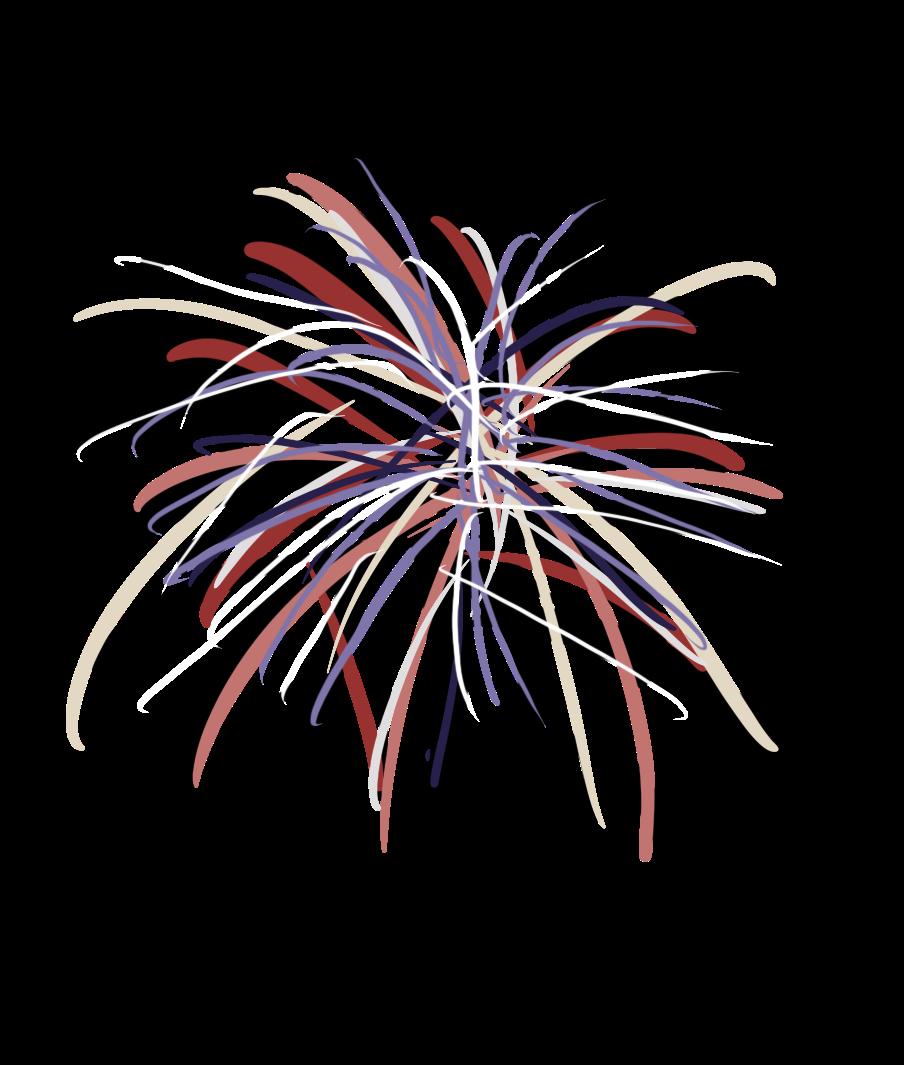

Nonetheless, I know which habits I’m letting go of.
I’m letting go of the lies I have told others and the lies I have told myself. For too long I have justified my tendencies to “bend the truth.” Never lying, just bending the truth.
Lies of omission. White lies. Elaborate deceptions.
I’m sick of convincing myself that it wasn’t lying, so long as I was using technicalities. I’m sick of the damage it caused. I can’t know what this year will bring, but I know what I’m leaving behind. And I can’t wait. I can feel the new beginnings and possibilities unfold ing before me.
Happy New Year.
by Liana Naidu
53 52
VOLATILE MELANCHOLIA
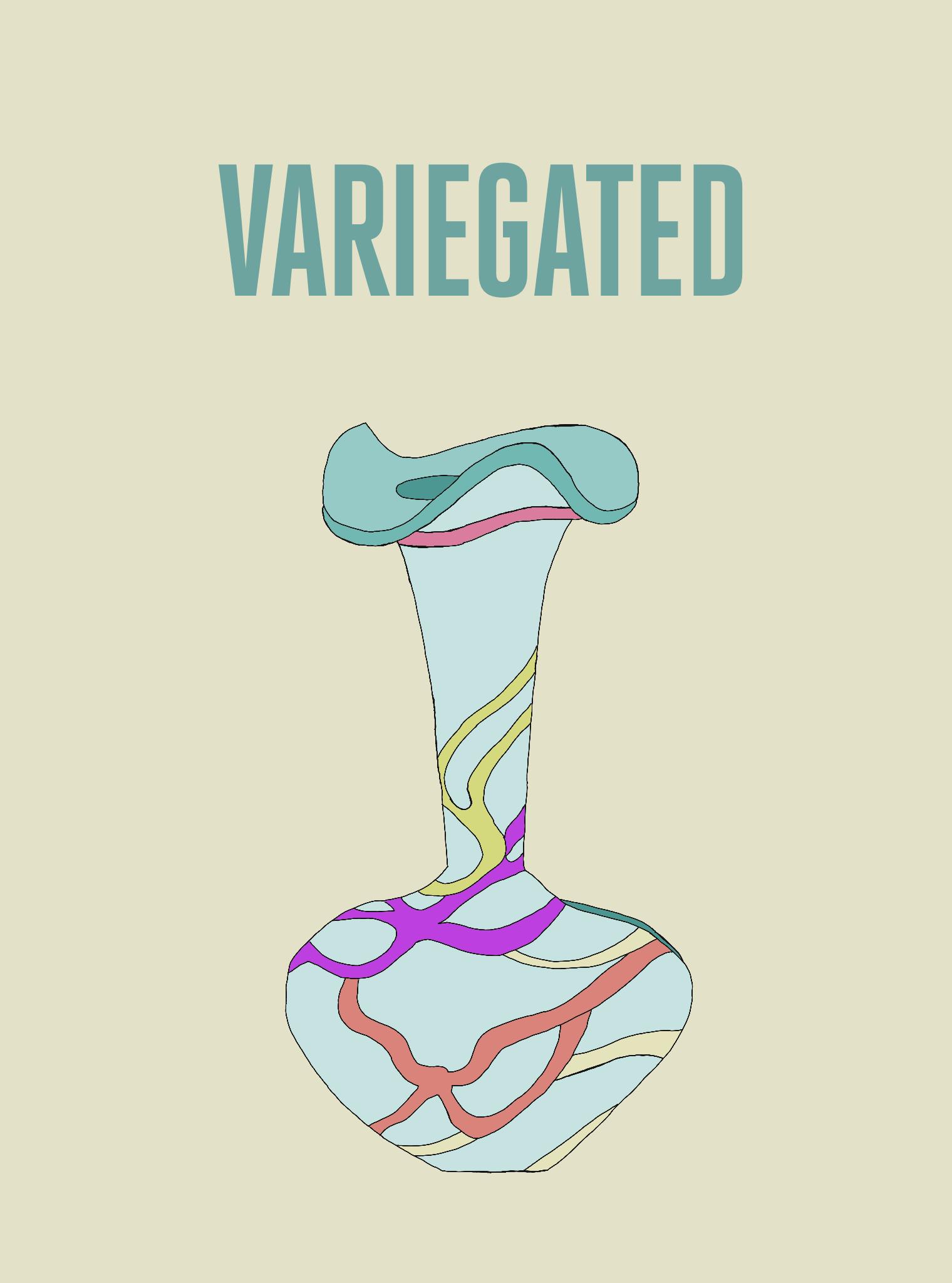
water runs past cracked glass, with droplets splintering after each intrusion. one by one. i come undone. face warped with each illusion.
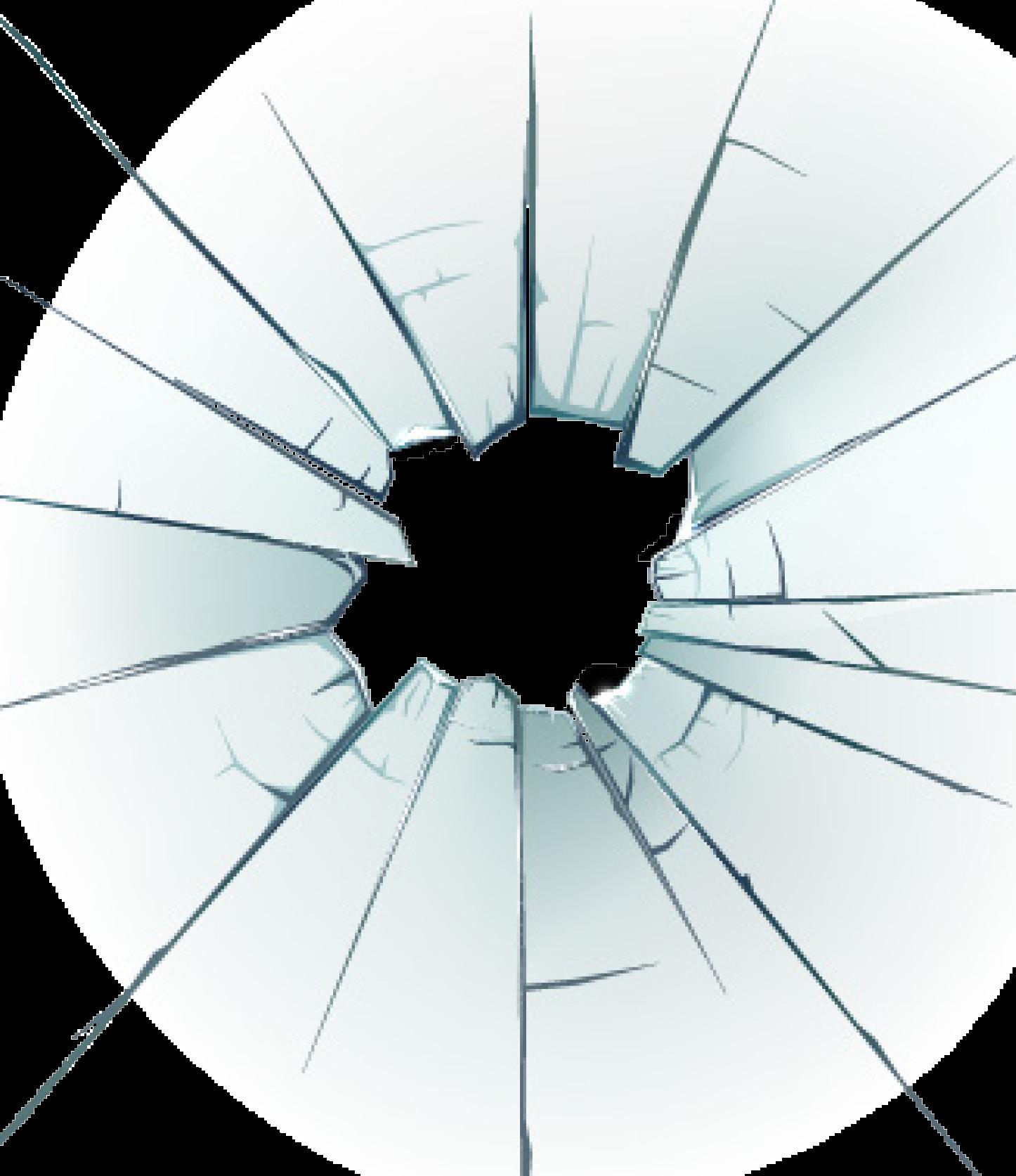
a reflection stares back at me, i breathe with an unsteady heartbeat. each time i take a breath, i kill myself with my own deceit.
i come undone. one by one.
laying in the blood of my deceit, dripping down my arm as i self-complete.
i don’t know what is real or illusive.
maybe i’ll stay another night in bed, my thoughts intrusive.
by Ahrya Reddy
54
CREATIVES
THE ROONEY-FICATION OF GEN-Z
Did you have a hard last few years? Are you a complex person with complicated feelings? Do you fall in love with all the wrong people? Well, then, Sally Rooney is just the author for you! Follow along as Jasmine Oke lays out all the ways the budding author is taking the world by storm.
Picture this: It’s the summer of late 2018/early 2019 and you’re flicking through a few Instagram stories after a long, hard day under the sun. You’ve noticed a common theme over the past few weeks: what is this human sardine book, and why is everyone and their mother reading it? Before we even get to that point, why is everyone seemingly reading at the beach all of a sudden? It’s the 21st century, young people don’t read anymore (obviously). Then, what is this strange little book that has people so gripped that they must take it with them on their summer adventures? That they must risk sand between the pages and a salty, torn cover? Your answer: Normal People by Sally Rooney.
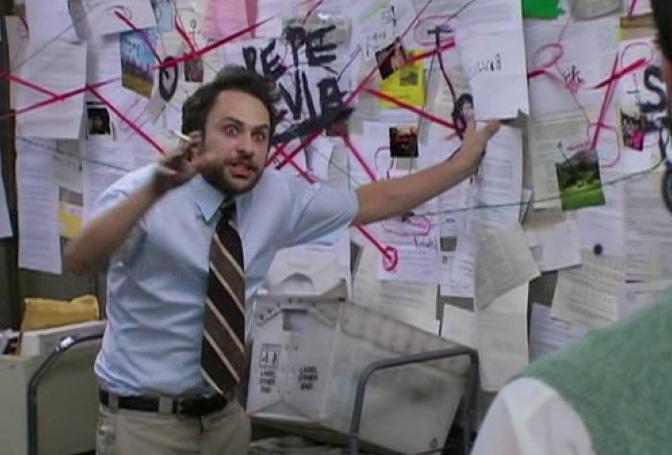
While the Sally Rooney epidemic of the past five years has undoubtedly seen great change and growth in the reading habits of Gen Z, it has also seen a redefinition of Gillian Flynn’s (or arguably Rosamund Pike’s) ‘cool girl’ archetype. ‘Cool girl’ is no longer hot. ‘Cool girl’ is no longer game. ‘Cool girl’ is no longer fun. ‘Cool girl’ no longer abstains from getting angry. Instead, she embodies the antithesis of all these things. The ‘cool girl’ isn’t passive. Together, with the likes of Ottessa Moshfegh’s My Year of Rest and Relaxation, Mona Awad’s Bunny, or Rachel Yoder’s Nightbitch, Rooney—with her three novels—is a concrete member of the ‘Unhinged Woman’ elite. A genre that has only gained more and more attention as the century has progressed.
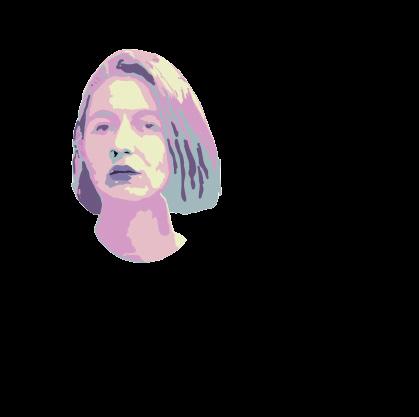
Despite the strong foundation of this genre, there isn’t a single contemporary name with a cult following quite as large and as dedicated as that of Sally Rooney. The author has almost become like a brand. If you’re not being recommended Sally Rooney novels, then you’re being recommended ‘Sally Rooney-esque’ novels – as though an entire other new genre is emerging. No longer are we pretending to want to read the ‘great classics’ to come across as fun and intellectual. Instead, we want to be the kind of person who would read Sally Rooney. Austen, Melville, and Dickens may have forged the path, but they’re all being pushed aside to pave the way for their younger, cooler sister. These novels are profound discussions of class and the human experience, laced with romantic intimacy that is both terrifying and hopeful. Yet, despite such interwoven lives, the characters still fall prey to miscommunication and a lack of transparency. They’re real, and we as readers can find ourselves –and comfort – in them and their flaws with ease. Everyone’s either a Marianne or a Connell, which one are you? Regardless of your answer, you’re bound to have Frances, Nick, Alice, Felix, Eileen, and Simon-shaped jigsaw pieces which also fit just right.
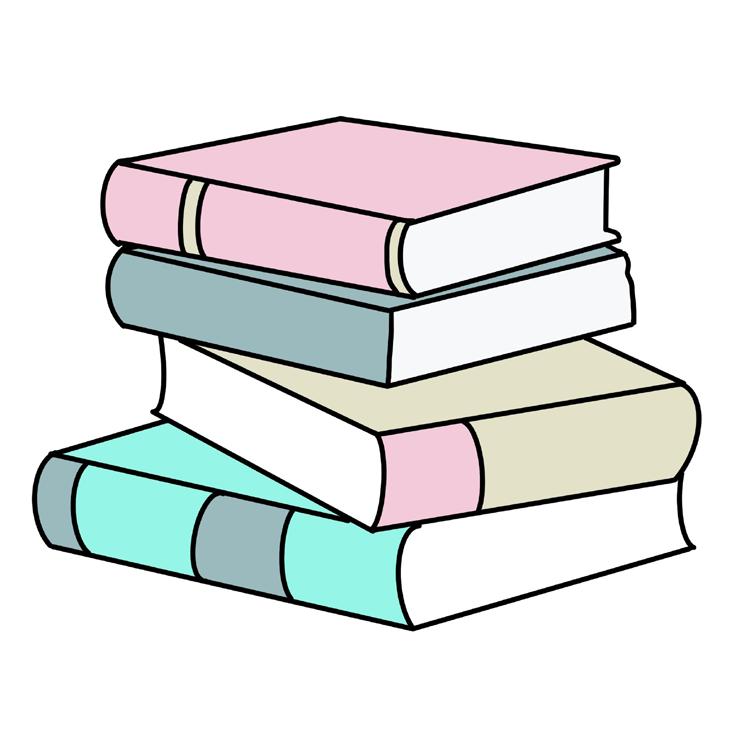
The divisive characteristic of Rooney’s work is her utilisation of the absence of quotation marks in any instance of dialogue throughout her novels. Done to highlight this theme of miscommunication, Rooney abstains from clearly indicating where speech begins and ends, who is necessarily speaking at any given time, and what is being said aloud vs what is merely a thought. While this may be frustrating for some readers (I admit I was one of them to begin with), others enjoy the challenge of deciphering these moments. The latter is clearly the prevailing attitude, otherwise, Rooney wouldn’t have had such great success with all three of her novels: Conversations with Friends (2017), Normal People (2018), and Beautiful World, Where Are You (2021).
Not only has Rooney had plenty of commercial success, she’s also been held to critical acclaim. Though not her debut novel, Normal People, as previously mentioned, is what cemented Rooney as the Gen Z icon she is today. The 2018 Waterstones’ Book of the Year, winner of ‘Best Novel’ at the 2018 Costa Book Awards, and longlisted for the 2018 Man Booker Prize, Normal People dominated the literary world in its release year. What’s more, it has dominated social media spaces (I actually dare you to try and find a BookTok or Bookstagram account that hasn’t mentioned it), bookstore customers’ carts, and television screens each year thereafter. Adapted into a BBC miniseries in early 2020, Normal People – and Rooney herself – expanded their audience by branching off into the world of television. It’s safe to say that the series, featuring Daisy Edgar-Jones and Paul Mescal as main characters Marianne Sheridan and Connell Waldron, was an instant hit. It cemented the stars as respected and adored actors among Gen Z and Millennials alike, leading to their involvement in later hit films such as Where the Crawdads Sing (Edgar-Jones) and Aftersun (Mescal). Fans of the book were initially concerned upon hearing news that the much beloved book was being adapted for screen due to the intense intimacy between these two characters and the difficulty in replicating that with real people. However, Daisy and Paul’s on-screen chemistry was so outstanding that it now has fans following their friendship outside of the Rooney story world (perhaps a little too closely).
Finally, the prevalence of this household name cannot be discussed without mentioning ‘The Sally Rooney Multiverse’ [insert ‘it’s all connected’ meme*]. This refers to an ever-growing web of connections that can be made between different elements of the Sally Rooney realm. Beginning with Rooney herself, the web expands out to her two adapted novels (NP & CWF in 2022) and their respective actors. I won’t go too deep into it (it’s best you go into this with a fresh mind), but just know – if you like Taylor Swift, Fleabag, Phoebe Bridgers, or Harry Styles, then you’ll probably like Sally Rooney.
by Jasmine Oke
Making Miscommunication cool again
VARIEGATED VARIEGATED 57 56
Image: Anon, 2023, Charlie Day Meme Generator, online image, viewed 6 January 2023, https://imgflip.com/memegenerator/92459171/Charlie-Day
THE ART OF LYING TO YOUR THERAPIST
Being vulnerable is hard. Being vulnerable to a therapist, believe it or not, can be even harder. Nilab Siddiqi explores the difficulties faced when opening up to therapists and why it seems to be such a common issue.
really been the things that concern me the most. I call that damage control, but some people would call it lying. Potato, po-tah-to.
Step 2: Make sure I get there half an hour early so my therapist doesn’t hate me
Probably one of the issues I should talk to my therapist about. Probably not gonna talk to her about it.
Step 3: Ensure that throughout the entire session, I don’t use vulnerable language
Yes, I’m here to talk about my problems and become a better version of myself. No, I’m going to use the word ‘depressed’ or ‘afraid’ or ‘overstimulated’, that feels … big.
Step 4: Don’t let my therapist start talking about serious issues
She can’t fool me. I’m a seasoned professional, baby.
Step 5: Book my next appointment and pay my abnormally large fee
All while knowing I’ll be back next month and continue to not talk about what needs to be talked about.
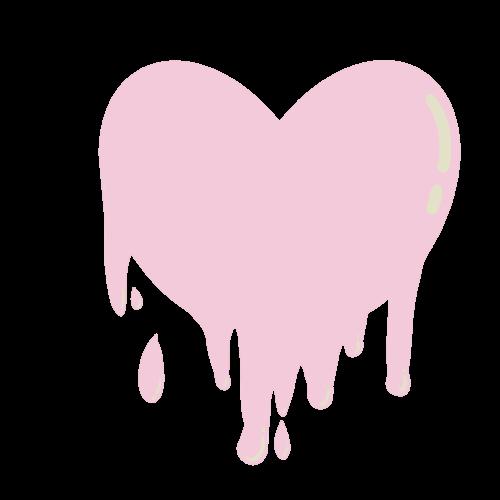
Et voila, my monthly therapy routine.
Look. It’s not like I want to lie to my therapist. I don’t! I’m just chronically unable to open up. It’s a big problem, I know.

I was so proud of myself for taking the leap a few years ago and booking my first appointment with a therapist (let’s just say it was a long time coming), and, well, I’m still proud of myself for continuing to go and opening up some, but the truth is, I lie a lot. Well, I guess it depends on whether a lie of omission is considered a lie on its own.
And the best part of it is…I’m not alone! Apparently, everyone lies to their therapists! Huzzah! According to a 2015 APA survey[1], 93% of their respondents said that they’ve lied at least once to their therapists, and damn, does that make me feel less stupid. Why do you feel stupid, you ask? Hmm. It might have to do with me spending upwards of $1000 annually to not get into the nitty gritty of my issues with the person I’m paying $1000 to help me.
Why do I lie to my therapist, you ask? Well, aren’t you inquisitive. I don’t know exactly why I hide so much from the person I should be most vulnerable with. I’ve just always been like that. I’ve never (ever) been the kind of person to be open with people about how I feel whether it be my closest friend or my family, I just can’t do it. It doesn’t matter if I’ve just been in a violent car crash or my house has burned down or I fell off a ladder after getting broken up with, you ask me ‘how are you’ and I’m always replying with ‘great!’.
I go to therapy once a month and every time I go, I have to follow a strict routine, so as to not wander off and talk about things that I really should be talking about. Let’s go on this dishonest little journey together.
Step 1: Over the entire month write down a list of things to talk about that aren’t what I really need to talk about
Yeah, that’s right. I make sure I have a list of incidents/issues to talk about and none of them have ever
But you know what? I think it’s normal. I know now that a lot of other people lie to their therapists. Whether it’s telling partial truths, lying by omission, or altering small or large facts to avoid being vulnerable, it’s all normal. Only in the last few years have discussions of mental health and well-being become more normalised in the western world, and it would be a shame for us to act as if it’s something that’ll automatically be easy for everyone. For some people, opening up about their mental health might be as simple as anything, and for others, it might be the hardest thing in the world, and that’s okay.
That’s why we’re all there isn’t it? Because we have issues we need to get through. It’s just that some issues take years to crack into, and that’s completely fine. In its own way, lying to your therapist or hiding things from them is still a way of telling the truth. Being honest with yourself is more important than anything and, in order to actually be seeing a therapist, you would have had to on some level been brutally honest with yourself about the help you need.
So if you find yourself relating to this article at all, please remember to be gentle and gracious with yourself. You’re doing the best you can. I see you.
by Nilab Siddiqi
VARIEGATED VARIEGATED 59 58
[1] Blanchard, Matt., and Farber, Barry A. “Lying in psychotherapy: Why and what clients don’t tell their therapist about therapy and their relationship.” Counselling Psychology Quarterly, vol. 29, no. 1, 2015, pp. 90-112.
Follow along as Sophie Poredos lays open the truth of going through life in hopes of pleasing everyone around you.
‘New year, New me’ has come upon all Grapeshot readers and writers. What better time to reveal one of my inner flaws, than to the campus of Macquarie?
I am a certified people pleaser. People pleasing doesn’t class you as a bad person, but it certainly doesn’t make you a good one either. The desire to say ‘yes’ all the time and act upon my whims to make others happier has actually created a lot of messy situations for me recently. From over-inviting new friends to gatherings, to trying to balance various circles of friendships, each one is just a disaster waiting to happen. Even joining in on stupid shenanigans out of peer pressure just to be accepted, it’s resulting in my identity and happiness starting to unravel at the seams.
DROP THE PEOPLE PLEASER
It’s a scary feeling when you don’t quite know who you are as a person, when you observe yourself through the multiple accommodating personalities you take on and when you realise how easily you’re influenced by those around you. I’m sure some of you may catch yourself becoming super energetic and bubbly toward a new group of people and becoming more reserved around your older friends, it’s an exhausting game of tug-o-war. Just the fear that someone might possibly not like your character or speak poorly about you behind your back can be an intimidating feat to correct in itself.
Ironically, I love opening myself up to rejection. It’s such a freeing experience. In 2022 I went on as many Bumble and Hinge dates as possible, meeting strangers and not knowing if I would ever speak to them again. I wanted to move freely in life like water, with no attachments to situations and feelings, rather letting them pass by. Shooting my shot for the sole purpose that
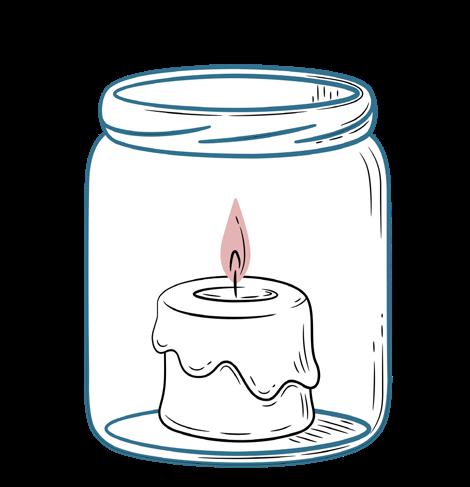
I could move onto the next hurdle. ‘Character growth’, I would class it. But I’ve come to realise this all-so-epiphanic moment I thought I had mastered seemed to collapse when it came to socialising with new groups of people and potential recurring friends. Perhaps there is a difference between not caring about a stranger you’ve just met versus the friend of a friend who will inevitably pop their head at a social event in the future.
Just the idea of ‘making a good impression’ is a suffocating ideal to live by; why are we so afraid of making a blunder in front of a new person? But for the fellow people pleasers in the crowd who relate, according to Medical News Daily, we have to start working on setting our boundaries, enjoying time alone and saying ‘no’ more often. [1] Whilst these aren’t exactly easy measures for those who always prioritise others’ needs above their own, smaller steps are the building block for the emotionally healthy gal you want to turn into (for me it was asking others to help me with tasks instead of putting the burden on myself as a sole leader).
I’ve only just begun my journey to drop the people pleaser title and count my lucky stars for having an amazing partner who pulls me aside and reminds me to stop volunteering myself to make others happier. With some reflection on my recent misconducts, I decided that my 2023 resolution will be to drop my people pleaser title and enjoy the opportunity to say no. To cancel overscheduling my life and dropping everything in a moment to help others.
Join in with me as we start being selfish for ourselves and dear god, slow the fuck down.
 by Sophie Poredos
by Sophie Poredos
TILTE 2023 Resolution:
VARIEGATED 60
[1] Villines, Zawn. “People pleaser: What it means and how to stop.” Medical News Today, 27 May 2022, https://www.medicalnewstoday.com/articles/people-pleaser
The Faces of Jimmy McGill, the Question of Honest Change
“People don’t change, you’re Slippin’ Jimmy!”
In Breaking Bad, Saul Goodman is an anomaly. In a series full of complex characters, Saul is a two-dimensional, cartoonish sleazebag with a one-liner for every moment. Played by the comedic genius, Bob Odenkirk, Saul served as comic relief in a world where the dissolving of children in barrels of acid is shrugged off as “shit happens.”
In Better Call Saul, the prequel series centred on Saul Goodman’s life prior to meeting Walter White, we meet James McGill. With the added context of the prequel, Saul is recontextualised from a clown to a mask worn by a broken man addicted to lying and swindling others. This addiction cost all of his personal relationships and pushed Jimmy to put on the clown-like mask of Saul to escape all of the pain he inflicted on his loved ones.
Because Better Call Saul is a prequel series, we are acutely aware of where Jimmy ends up. As such, a feeling of inevitability looms over every significant character moment. We despair as Jimmy slowly morphs into Saul because there is nothing admirable or redeemable about Saul.
But there is hope. Despite being a prequel, the series is bookended with black-and-white scenes taking place after the events of Breaking Bad. Here, Jimmy dons a new face: Gene Takavic. Hiding from the DEA, Gene lives in a purgatory where time is marked by the baking of cinnamon buns. As such, while we watch Jimmy’s downfall and the permanent wearing of the Saul Goodman mask, the black-and-white scenes pose the question: As Jimmy can’t redeem himself under the mask of Saul Goodman, can he do so as Gene Takavic? If so, what will that take?
Who is Jimmy?
Through flashbacks and dialogue, we learn that Jimmy’s early adulthood was spent with him wearing his first mask: “Slippin’ Jimmy.” Slippin’ Jimmy was an infamous con artist in Cicero, Chicago who pulled slip and falls and other cons to swindle hundreds out of strangers’ pockets. According to Jimmy’s brother, Chuck McGill, Jimmy was a liar who not only scammed hundreds but embezzled thousands from his father’s shop, resulting in the business’ collapse and his father’s subsequent death.
But when we meet Jimmy in the series, Jimmy McGill is a genuinely loveable character. Audiences liked Saul because he was funny in a world full of murderers; audiences love Jimmy because he is kind-hearted, charismatic and a hard worker. When we first meet Jimmy, he’s struggling to build his solo law practice while caring for his sick brother, providing food and supplies for him daily. Jimmy becomes a champion for the elderly by building a multi-million-dollar class action lawsuit. He was the only lawyer who cared enough about his clients to notice they were being defrauded by their retirement home. Despite his criminal past, Jimmy did his best to be an honest person, even going so far as to return stolen millions to the District Attorney to ensure a criminal client secures a plea bargain.
Despite this, not everyone wants him to succeed because to do so would acknowledge that people who were once ‘bad’ can become equals with those who view themselves as ‘good.’ In the show’s pivotal moment, Jimmy learns his brother Chuck, the one he cared for daily, never respected him and gatekept him from a top-tier law firm. “I know what you were,” shouts Chuck, “what you are, people don’t change. You’re Slippin’ Jimmy! And Slippin’ Jimmy with a law degree is like a chimp with a machine gun!”
“I thought you were proud of me,” Jimmy responds. And so, all of Jimmy’s efforts to change crumble. What’s the point of changing if he will only be seen as a sleazy con artist?
Jimmy the Addict
I use the language of addiction to describe Jimmy’s characterisation because it allows us to understand the sheer difficulty and urgency for Jimmy to change his behaviour. Despite Chuck’s resentment for his brother, he’s right in telling Jimmy that he needs to change “before you destroy yourself.”
Jimmy’s addiction to the bottle of the con stems from an early memory of a criminal using a sob story to swindle Jimmy’s father out of $10. Despite Jimmy protesting that his father was getting scammed, his dad gave the man the benefit of the doubt and paid him. “There are wolves and sheep in this world, kid. Figure out which one you want to be.”
This psychopathic worldview taught Jimmy that everything is a zero-sum game where the winner takes all by any means necessary. For Jimmy, it doesn’t matter that he can humiliate his brother’s mental health issues in court to vindicate himself; it doesn’t matter that he can lie to the court to help his drug lord client flee the country for the murder of a nineteen-year-old. Jimmy is not a sheep. But who are the wolves?
We learn that the “wolves” are whoever Jimmy thinks is looking down at him. This stems from his troubled relationship with Chuck who, despite all of Jimmy’s efforts to reform himself, believes that Jimmy will always be Slippin’ Jimmy the con artist. Unfortunately, this has blinded Jimmy from seeing that there are genuine people who aren’t out to get him or gatekeep him like his brother. For example, in Season 2, a top-tier law firm offers Jimmy a job – complete with a company apartment and car – out of respect for him building the class action elder abuse case. Jimmy takes the opportunity only to force his boss into a game of chicken to fire him simply because he feels like a “square peg.” When Howard offers Jimmy a job, Jimmy says, “I’ll think about it,” before wrecking Howard’s car and embarrassing him at a business lunch by sending two prostitutes.
Jimmy’s past and his estranged relationship with his brother fuelled his feeling of inferiority to the point where he earnestly believed that he cannot be anyone else except for Slippin’ Jimmy. The final words that Chuck told Jimmy before his suicide were: “In the end, you’re going to hurt everyone around you, so stop apologising and accept it, embrace it.”
REPEAT OFFENDERS REPEAT OFFENDERS 63 62
Instead of proving his brother wrong, Jimmy gives up any prospect of change and embraces the Slippin’ Jimmy mask. Not only that, he begins to craft a new one: Saul Goodman, the criminal lawyer who is unafraid to engage in chicanery to get his clients unethical – and the best – criminal defence. Saul was going to be a wolf.
The Mask of Saul Goodman
In the episode “Fun and Games,” Kim Wexler, Jimmy’s wife, divorces Jimmy after their scams result in the murder of Howard, one of their friends. Immediately, the next scene jumps forward four years to a Jimmy unrecognisable at the start of the series: he’s no longer in Kim’s apartment but in a grand mansion with a prostitute in his bed. Throughout the day he shouts into a Bluetooth earpiece, threatens to sue a doctor and harasses his secretary.
The long-awaited moment Jimmy transforms into Saul Goodman isn’t the triumphant return of the fasttalking sleazebag universally loved in Breaking Bad. Instead, we see a pathetic man desperately trying to convince himself that he’s happy. At this point, there is no one left who calls him “Jimmy.” The kind-hearted man who was once a champion for elders, is gone.
What were once the comedic antics of Saul are just a lie Jimmy repeats to forget the trauma of destroying his loved ones. It’s impossible for Jimmy to change because to do so would mean facing the consequences of his actions and the enormity of the hurt he inflicted. Jimmy surrendered to the mask of Saul. If he was going to hurt everyone around him, he might as well do it well and do it full-time. It is as Saul that he meets Walter White and becomes indispensable to the creation of a drug empire responsible for a methamphetamine epidemic and the murder of hundreds.
Gene Takavic and the Possibility of Redemption?
After Walter White’s empire crumbled, Saul escaped to Nebraska under the identity of “Gene Takavic.” Throughout Better Call Saul, it was inevitable that Jimmy would transform into the irredeemable Saul Goodman. The presence of the black-and-white scenes with Gene Takavic opens the possibility of redemption but very quickly, Gene, much like Slippin’ Jimmy, returns to the bottle of the con, working with low-level criminals to rob stores and scam rich bar patrons.
Eventually, Jimmy is arrested and faces a life sentence. Never the sheep, Jimmy uses the mask of Saul to sell a sob story of how he worked under the threat of Walter White to coerce the DEA into offering a plea bargain of seven and a half years in prison. In a room full of federal agents, Jimmy, the man in the prisoner jumpsuit, was still the wolf.
As Jimmy is about to get sentenced in an Albuquerque courtroom, he catches a glimpse of his ex-wife Kim. It’s a pitiful sight. Even though Jimmy successfully negotiates a seven-and-a-half-year sentence, nothing awaits him on the other side. His brother is dead, he has no friends, he will never return to work as a lawyer, and his ex-wife has no love or respect for him.
Jimmy had always been a liar but to everyone’s surprise, he confessed to the judge that he lied to the Government. He was never a victim of Walter White; he was indispensable to the whole operation. For the first time in the series, Jimmy is no longer wearing a mask and is earnestly facing the consequences. He confesses to Howard’s death. He confesses his tumultuous relationship with Chuck and how he didn’t try hard enough to mend the feud that drove Chuck to suicide.
“And I’ll live with that,” says Jimmy.
As Saul, he escaped from the trauma that he inflicted. As Gene, he escaped the law for the crimes he committed. Returning again as Saul, he swindled the Government into an 8-year plea deal for crimes that carried a life sentence plus 106 years. But Jimmy threw away the deal, confessed to all of his sins and regained his name.
“Sit down, Mr. Goodman,” says the judge.
“The name’s McGill. I’m James McGill.”
Conclusion
Better Call Saul shows us why we don masks. In Breaking Bad, Saul was a sleazebag but in Better Call Saul, we learn it is the ultimate coping mechanism. For all his life he was running away from who he really was: a kind-hearted man plagued by addiction. His ultimate triumph is that for once, he told the truth, not to win back anyone’s respect or to save himself, but to admit his crimes to the court and to himself.
After a life of lies, Jimmy is sentenced to 86 years in a maximum security prison. However, it’s not all bad: Jimmy wins back his humanity and some small semblance of respect from Kim. The tragedy of Jimmy McGill is that he had too many opportunities to save himself and never took any of them; it was only when he lost everything did he decide to turn around. But Jimmy also proves that even after a lifetime of running, a liar like Jimmy can turn around and tell the truth.
by Bradley Cagauan
REPEAT OFFENDERS REPEAT OFFENDERS 65 64
DISCUSSION: THE POLITICS OF AUTHENTICITY
Emily Brontë wasn’t incestuous, Faulkner wasn’t racist, Nabokov wasn’t a paedophile – debate sounds familiar?
Writers of literary fiction have always faced the issue of people assuming their views are their characters’, because readers are often reading critically, trying to find flaws. If a character or persona is flawed, so must the author then be. This is old news. Of course authors aren’t the same as their characters. But in saying that, this brings a new problem to the table for writers, possibly more controversial today than ever.
“Great writers” have often poured their own selves into the fiction they’ve written, so now it’s assumed that “great writing” has parts of the author and their world. That’s what makes the writing believable, authentic. Yet the writer needs distance from the character, otherwise their characters are just them. This is a delicate balance, different for all writers – and the balance comes loaded. Enter one of literature’s biggest debates. To “write what you know,” “write who you are”.
What’s easy: a Jewish person writing a Jewish character to bring light to Jewish race politics. Great. This is an empowerment of minority voices, it’s authentic; if written well then it’s written well. This is happening across the board, not just in writing, but in the Arts – real minority and survivor representation is thriving. More perspectives are being heard. More creative visions are being seen. Supposedly, this creates more progress in the Arts, but this is a double-edged sword.
What happens when writers reject the “write what you know” mantra? Fiction is fiction after all, surely that’s allowed. But the line between appropriating cultures’/ victims’ stories and plain old self-censorship is a thin, moving and contested squiggle.
What’s debated: a non-Jewish person writing Jewish race politics from a Jewish character’s perspective. Is that cultural appropriation? And, follow up question, if they do write these race politics, is it still an empower-

ment of Jewish voices in light of the character, or is it silencing Jewish voices in light of the author? Really, think about an answer. Then ask where we should draw the line. Does it change with a Black person writing a White story? Vice versa? Can we write queer characters, characters outside our gender, poor or disabled characters if we aren’t in their demographic?
Most writers will answer yes, but do so authentically, or in a humane way. Don’t make the Jewish character greedy, for instance. But can the non-Jewish writer ever understand Jewish politics from the Jewish person, let alone depict them, or is their writing just a projection, complex and empathetic as it may try to be? The same question goes for men writing feminism, nepotists writing rags-to-riches, Christians writing Muslim culture, the list goes on.
What I want to do here is not give you beautiful readers an answer, but rather bring to light this debate in whatever fiction you’re reading right now. How faithful to “reality” is your author in creating their worlds and characters; what liberties have they taken; what lines have they overstepped, if any? These thoughts are especially important because we currently have self-censorship taking up increasing consideration in our lives: think social media and the words “unalive”, “SA”, “ana”. While there are arguments for and against this censorship, there are more layers to it when discussing the boundaries of artistic expression. That which supposedly thrives when it remains uncensored, or minimally so.
So. How much can fiction be “fiction”; to what extent are writers allowed to hide be-
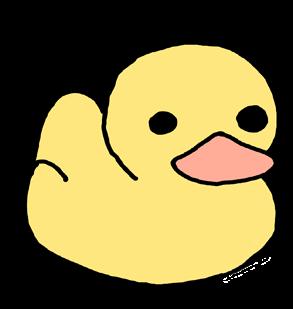
hind the label before it gets touchy? Is Hanya Yanagihara’s A Little Life, a Booker Finalist novel centring on childhood trauma and disability, stealing a victim and disabled story? Does that view change when she said she created her main character, Jude, without any research? What about Memoirs of a Geisha, a WWII Japanese historical novel written by American author Arthur Golden… with a master’s degree in Japanese History? Can we claim cultural appropriation, projection, orientalism, there? The debate becomes more complex when recognising intersectionality: a lesbian story is different to a lesbian story within an Asian cultural context, so is the White lesbian author, again, projecting? Is she to censor and put disclaimers on her art for cultural appropriation, or is she to dismiss the culture and write anyways? Which one constitutes better, more authentic art?
If your answers are “yes, all authors are telling stories best told by abuse victims, disabled people, Japanese writers and lesbian Asian authors,” then that follows on to the so-called literary canon. We shouldn’t treat the Greats differently because they’re established – that would mean then that “Yes. If Brontë wasn’t incestuous, Faulkner wasn’t racist and Nabokov wasn’t paedophilic, then Wuthering Heights is a phony depiction of incest, Faulkner should’nt’ve written Black characters, and Lolita isn’t a good discussion on sexual abuse.” We would have to concede that these works weren’t, and aren’t, politically correct enough.
We want you to decide: can stories only be told well if you have written what you’ve known? If not, then how much can
authors write about before it’s offensive; if so, then how much “fiction” can we truly put into stories? Should fiction only be genre fiction, like fantasy; completely removed from political and social commentary? On the spectrum of “writers can do whatever they want” and “writers should only write what they know,” whatever stance you pick has implications for the novel you’re reading, the historical drama you’re watching, the canon you studied in high school.
Fiction is powerful, that’s the whole point. It’s unmatched at fostering empathy in people who otherwise might have less or no empathy for whoever character, whatever world they’re reading. That’s why fiction’s been used for propaganda, political change, great thought experiments, debates, controversies. It has implications for the non-fiction world, whether or not writers and readers want it to. Now, in the age of self-censorship, giving voices to the unheard, PC culture and the need to break business as usual – whose story is whose?
The Grapey Book Club would love to hear your thoughts – email us at grapeshot@ mq.edu.au
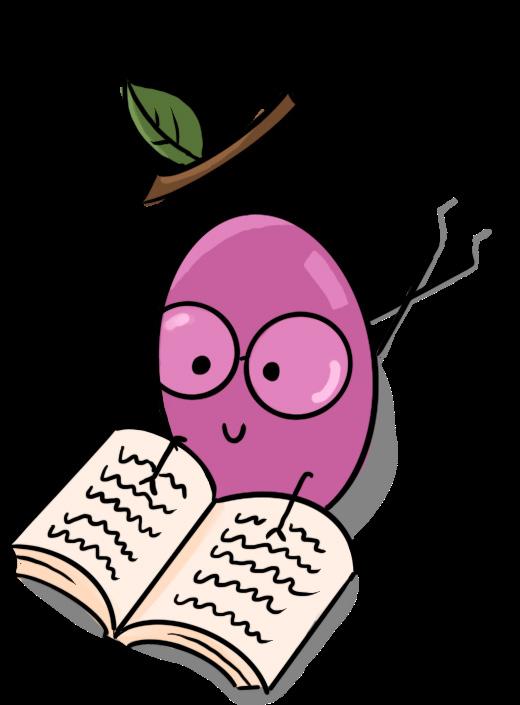 by Clara Kristanda
by Clara Kristanda
G R A P E Y B O O K C L U B
REPEAT OFFENDERS REPEAT OFFENDERS 67 66
GRAPEY PLAYLIST

CRYSTAL CLEAR EDITION
Shatter - Maggie Rogers
Shattered Ring - SZA
I Hate U - SZA
Champagne Problems - Taylor Swift
mirrorball - Taylor Swift
Skinnydipped - BANKS
GLASSY - JO YURI
Drink from the Water - Mako Road
Is There Something in the Movie? - Samia
Clean - Taylor Swift
Without Me - Halsey
Truth Hurts - Lizzo
This Is Why We Can’t Have Nice Things - Taylor Swift
Crystals - Of Monsters and Men
Sicko - Raleigh Ritchie
Scott Street - Phoebe Bridgers
t r a n s p a r e n t s o u l - WILLOW feat. Travis Barker
Cracks - Sly Withers
This Year - The Mountain Goats
California Dreamin’ - The Mamas & The Papas
CHAMPAGNE - Valley
dancing in the kitchen - LANY
Bejeweled - Taylor Swift
The Path - Lorde
Be Above It - Tame Impala
Summer Feelings - Lennon Stella, Charlie Puth
Mirrors - Justin Timberlake
Smoke And Mirrors - Imagine Dragons
ROMEO + JULIET

Baz Luhrmann’s 1996 Shakespeare adaptation Romeo + Juliet remains the ultimate modern portrayal of the infamous star-crossed lovers.
This film is a pastiche of pistol-shooting anachronisms, garish neon crucifixes, and Shakespearean dialogue. Set wittily on Venice Beach, California, the tragedy is the perfect crystallisation – and modernisation – of a teenaged lack of clarity and misguided love. Confusion, passion, and familial feuds are bedazzled by loud shooting scenes, a suave nineties soundtrack, and unbuttoned Hawaiian tees.
The story of Romeo and Juliet has never been more glamorous, more familiar. It’s hot and grungy, full of beachside brooding. Romeo is played unforgettably by Leonardo DiCaprio, whose voice-over soliloquy in the sunset reveals an introverted character guided only by emotions, desire. His intentions are solely ones of passion. Juliet, however, played by sweet-faced Claire Danes, is stuck in a place where honesty fails her. She must feign love for Paris, feign obedience to her mother – clarity has no place in her life, only secrets will bring her happiness. Luhrmann reminds us that Romeo, emotional in his journaling, and Juliet, content to orchestrate lies and fibs in her room of dolls, are both mere children.
Luhrmann loves manipulating water in this film. The moment Romeo and Juliet catch each other’s eye through the fish tank in the Capulet mansion is fateful. In the balcony scene, Romeo must hide in the pool beneath Juliet’s balcony as Nurse investigates. For this adaptation, water portrays a lack of clarity and simplicity in Romeo and Juliet’s relationship. The eternal distance between them is destined, water warps and mottles the frame, their fate together isn’t clear. It’s marred by this fishy water, this barrier. The film’s conclusion is crystal clear to everyone in the audience – it’s the Shakespearean tragedy, after all – but by using water to remind the audience of the lovers’ terrible fate, Luhrmann twists the knife in the wound.
It is, above all, the modernisation of Shakespeare’s play that makes the movie so irresistible and transparent to us. Shakespeare is often considered inac-
cessible due to his archaic language. As if by magic, Luhrmann retains this seemingly inaccessible mode of communication and reframes it into an utterly accessible, consumable and understandable story. The business rivalry between the Montagues and Capulets, the shaggy costumes and Americanisation, the gang-like feud between Tybalt (played so fabulously by John Leguizamo), Mercutio, and Benvolio – it all wonderfully, heart-wrenchingly, accumulates to the tragedy that tears your heart like a bullet and leaves it bloodied and wounded like any good gunshot. Let’s also not forget Mercutio’s (Harold Perrineau) ecstasy-induced drag performance of “Young Hearts Run Free,” as well as Paul Rudd’s mild and excellently vanilla perfor mance as Paris. Miriam Margolyes’s performance as Nurse rings on forever as she screams the line, “Juliet!”
Romeo + Juliet goes down in his tory as the ulti mate pimped-up Shakespearean tragedy. The heart-throb songs, the silver pistols, and sandy bat tles all accumulate into a fan tastic mosaic of love and hate. It’s like Luhrmann’s collected shards of glass, and rearranged them into an unthinkable, thrill ing image.
by Bruna Gomes
01 02 03 04 05 06 07 08 09 10 11 12 13 14 15 16 17 18 19 20 21 22 23 24 25 26 27 28
P O P C U L T U R E R E W I N D REPEAT OFFENDERS REPEAT OFFENDERS 69 68
Nic’s Flix: The Banshees of Inisherin is Martin McDonagh’s Masterpiece
Even though this film’s rich historical context adds a layer of depth, Martin McDonagh’s The Banshees of Inisherin has a delicious universality to it. Infused with historical metaphors, the film unravels its seemingly simple premise with not only complex characters and unpredictable storytelling, but also open-ended questions that provoke the audience’s self-reflection.
Set in the Irish isle of Inisherin – which was isolated from the 1923 Irish Civil War – the bloodshed on the mainland barely matters compared to the conflicts, bitterness and miseries within Inisherin. Pádraic Súilleabháin (Colin Farrell) may be the happiest man there: content with the mundanity of his life, he makes his living as a farmer, lives with his sensible, loving sister Siobhán (Kerry Condon), and is well-liked among the islanders. Most important to him is his lifelong friendship with folk musician Colm Doherty (Brendan Gleeson). However, when Colm begins to ignore and push away Pádraic, telling Pádraic that he just doesn’t like him anymore, Pádraic is unable to accept the end of their friendship. He makes multiple unsuccessful attempts to repair the relationship while Siobhán and troubled islander Dominic (Barry Keoghan) try to de-escalate the situation. Colm eventually delivers a self-sabotaging ultimatum that causes Pádraic to break further and leads to consequences for both men.
We have all lost a friendship before. It’s an inevitable turn in our lives and it is bound to be painful. You’ve spent years building a relationship with the one person that’s been in your life and one day, they break things off. Yes – sometimes there are valid and/or terrible reasons why they cut ties, but whenever there’s no clear reason, it makes the pain worse because you’re left wondering. Did you do something wrong? Did something about your personality drive them away? There’s no way to rationalise it. It feels natural to try to salvage a relationship, but that’s never guaranteed. Attempts to salvage one can prevent you from moving on and lead to further pain, yet it’s a sign of caring – one that speaks to your humanity.
That heartbreak is reflected beautifully in Pádraic’s characterisation. Seeing him lose his happiness, innocence and niceness because of the cruelty he faces is upsetting, but his actions remain consistent with his naïve, childlike personality. He’s dull, kind-hearted and may be a bit much to handle, and when he hears the community talk about how dull he is, it’s heart-wrenching. Pádraic is a relatable character brought to life by Farrell’s masterful performance: he’s filled with genuine optimism but overwhelming sadness. His heartbreak is expressed subtly yet vividly through his despairing facial expressions, and his bitterness surfaces so that he reaches painful emotional highs.
McDonagh is more than interested in also exploring other angles. From an outside perspective, Colm’s actions are selfish and cruel, especially by bluntly and publicly pushing his friend away, fuelling rumours about their rift. He doesn’t make things better by associating with corrupt police officers like Dominic’s abusive father Peadar (Gary Lydon), whose interest in participating in the Civil War is to help execute treasonous people. However, McDonagh’s screenplay and Gleeson’s nuanced performance add an empathetic layer to Colm’s characterisation, no matter how irrational he is. His desire to leave behind a leg-
acy by creating great music introduces a thematic complexity of what it means to be remembered. The Banshees of Inisherin isn’t wholly sympathetic to Colm and his inflated ego, but it portrays his depression with alarming accuracy as his misguided attempts at self-care add more pressure to his ambitions. Every time Pádraic tries to open up a conversation, it is a bitter reminder of the time he has wasted in Inisherin. In his quiet moments, he’s suffering with his struggles, and The Banshees of Inisherin makes it difficult to hate Colm as you learn more about his true character.
The brilliance of The Banshees of Inisherin lies not just within the multilayered conflict between Pádraic and Colm, but also in its willingness to explore its supporting characters. They don’t feel like plot devices. They feel like genuine, unique characters with personal issues. The real highlight is Pádraic’s sister Siobhán, the only character with common sense. She recognises the pointlessness of Pádraic and Colm’s conflict and the ugliness of Inisherin and its people. Fully independent and clever, she refuses to conform to Inisherin’s ways, which makes her a target to the islanders and contributes to her loneliness. She has aspirations outside Inisherin, but her dilemma involves leaving Pádraic behind. Even though she has to get real with Pádraic, she cares about him to the point of shielding him from hearsay, telling him he’s nice and not dull, despite ironically and comedically calling him dull in an argument with Colm. Siobhán feels like a fully formed character who isn’t solely contributing to the bitter male rivalry between Pádraic and Colm, and she’s played to perfection by Condon in a performance of dry humour, rationality and hidden vulnerability.
Another key player in Inisherin is misfit Dominic Kearney, whose behaviour appears weird, off-putting and mischievous. His presence threatens to detract from the narrative, but when we learn of his tragedies, including the constant abuse by his father that the islanders are aware of but never care about, we see him develop a moral contrast against Pádraic’s actions, he matters. Dominic’s characterisation is also affected by his unrequited crush on Siobhán and his attempts to socialise with her. Because of his difficulty to communicate, his awkward conversations unintentionally anger Siobhán, and the results are both hilarious and painful. When they share their final scene, there’s a surprisingly darker
emotional weight that overcomes the comedy and sets the tone for The Banshees of Inisherin’s final act. It becomes clear Dominic is a harmless, traumatised boy with a good heart, whose circumstances will never improve. His arc comes to a melancholic end, realised by Keoghan’s ability to balance cringe humour with a sense of hidden sadness.
Because of how The Banshees of Inisherin spends time in its central setting, Inisherin too becomes a character. Judging from the gorgeous green lands and Catholic iconography throughout the island, shot brilliantly by DP Ben Davis, one would easily assume Inisherin to be a quiet, peaceful little isle because of how isolated it is from the Irish mainland, where the Civil War still prevails. If it’s not the distant cannon fire to worry about, it’s the cruelties and open grudges the people hold there, along with Inisherin’s repetition and insignificance of life, which the existential narrative structure successfully replicates. As talk begins to spread about Pádraic and Colm’s fallout, the relationship becomes a microcosm of the Irish Civil War. Conflicts happen for seemingly no reason; drastic attempts to make amends or have one’s own ways lead to such suffering, violence and madness that it disrupts the feigned peace. Trying to make amends becomes futile when more damage is done. There’s no point in pinning “true causes” when bloodshed has destroyed so much innocence.
The Banshees of Inisherin’s historical context adds Shakespearean qualities to its rich narrative. Its lack of resolution for its characters or questions makes The Banshees of Inisherin challenging to watch. The affair isn’t entirely bleak since its existential melancholy is balanced against dry humour that arises naturally from its character decisions and dialogue. Despite a handful of absurd elements, McDonagh finds clever ways to ground them with the heartbreaking reality of his characters, and even conjures the Irish folktale nature of his storytelling.
Even Carter Burwell’s musical score engages in the film’s dark sense of humour, largely distant from Irish culture but distinctly communicating with its characters’ psychological states. Burwell’s music sounds simple, childlike and innocuous whenever it focuses on Pádraic, reinforcing his increasing distress over Colm’s actions and inciting curiosity in
71 70
Stories that transcend the time period of their settings by exploring the complexity of the human condition make them remarkable.
REPEAT OFFENDERS REPEAT OFFENDERS
the audience to dig deeper. Whenever The Banshees of Inisherin shifts focus to Colm, Burwell utilises fiddle-like compositions to highlight Colm’s genius and the pressure he faces. His folklike music aligns with the film’s tonal intentions, transitioning from quietly innocent to unbearably sad, and its genius sneaks up on you, much like the film itself, where every element is so well-tuned and detailed that it’s hard to pick out a major flaw.
The Banshees of Inisherin reflects Martin McDonagh’s finest work and his flawless approach to his material is bound to provoke subjective experiences among viewers. Some may be able to answer the personal existential questions it asks, while others will struggle. There are no right or wrong answers to find. That can only be decided by the viewer, and that answer is for themselves alone. It makes The Banshees of Inisherin ultimately haunting, but it is filled with humour, humanity, beauty, and truth to complement its emotional power. The Banshees of Inisherin has uniquely relatable situations, and it may make viewers reflect on painful pasts that they can’t move on from, but it delivers on many facets to create a quietly cathartic experience. And that’s a good thing.
Score: 10/10
by Nicholas Chang
Image: Jolin, D, 2022, The Banshees Of Inisherin Review, online image, viewed 6 January 2023, https://www.empireonline.com/movies/reviews/the-banshees-of-inisherin/
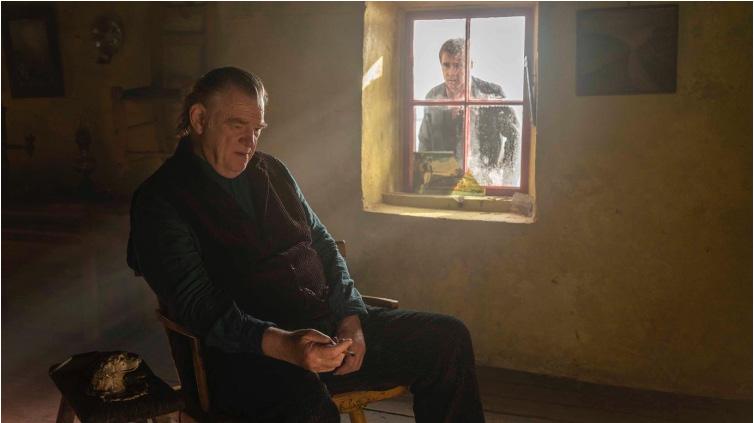
HOROSCOPES
ARIES
I know you feel like a failure sometimes, and your stubborn streak can cause you to become stuck in this mindset. Take a moment to look back at everything you have been through… you’re actually doing really well!
TAURES
This is a sign direct from the cosmos to you. Bake a cake and eat it too. Celebrate the good stuff in 2023.
CANCER
You have been waiting for your moment, and I’m here to tell you that it will soon come. In the meantime, lift others up and share in their successes. They will do the same for you.
GEMINI

You do yourself and others a disservice when you believe that you are hard to love. Trust in your value.
LEO
Whilst you take control over every area of your life, 2023 could see you thrown in the deep end. Make sure you have a life jacket. Rely on your support systems when times get tough and stop looking in every mirror you pass by. Please.
LIBRA

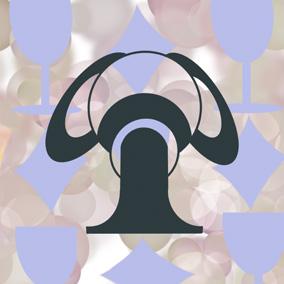
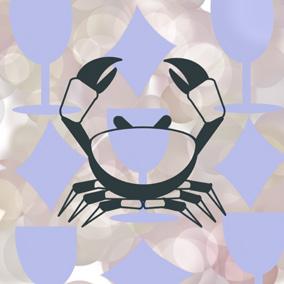
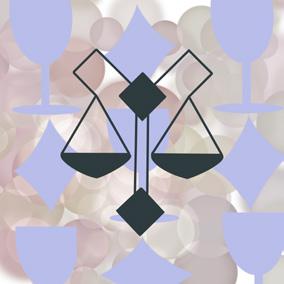
Be careful of any major changes this year Libra friends, we all know you can’t sit still for long periods of time. Focus on the things that make you happy rather than chasing uncertain fantasies.
VIRGO
After a rocky year, 2023 is looking to bring you some good fortune. This astrologist sees a HD in your academic year, but only if you aren’t afraid to take a few risks.
SCORPIO
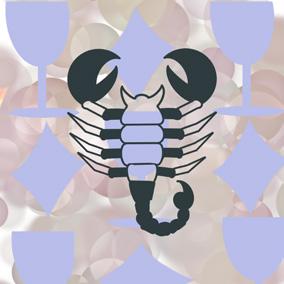
You kept very busy last year but now it’s time to enjoy the rewards of your hard work. Take the time to make a new five year plan and prioritize meeting new people.
CAPRICORN




2022 was not what you expected. Why do you think that is? Capricorns need to be a bit selfish and target their energy towards bettering themselves in 2023 because we all know what you got up for NYE this year.
SAGITTARIUS
It’s time for something new for our archer friends. You’ve spent too much time reliving the pandemic days. It’s time to put on some nice clothes and go outside, we aren’t in a lockdown anymore.
AQUARIUS

As hard as it is to come to terms with, some friendships are not meant to last forever. Be kind, and leave your heart open. I see beautiful new friendships blossoming in your future.
by Jackson Robb and Freya Petterson
PISCES
People aren’t mind readers babe, and you can’t expect to be understood clearly if you aren’t also putting effort into communicating clearly.

REPEAT OFFENDERS 73 72




















































































 by Sophie Poredos
by Sophie Poredos


 by Clara Kristanda
by Clara Kristanda














